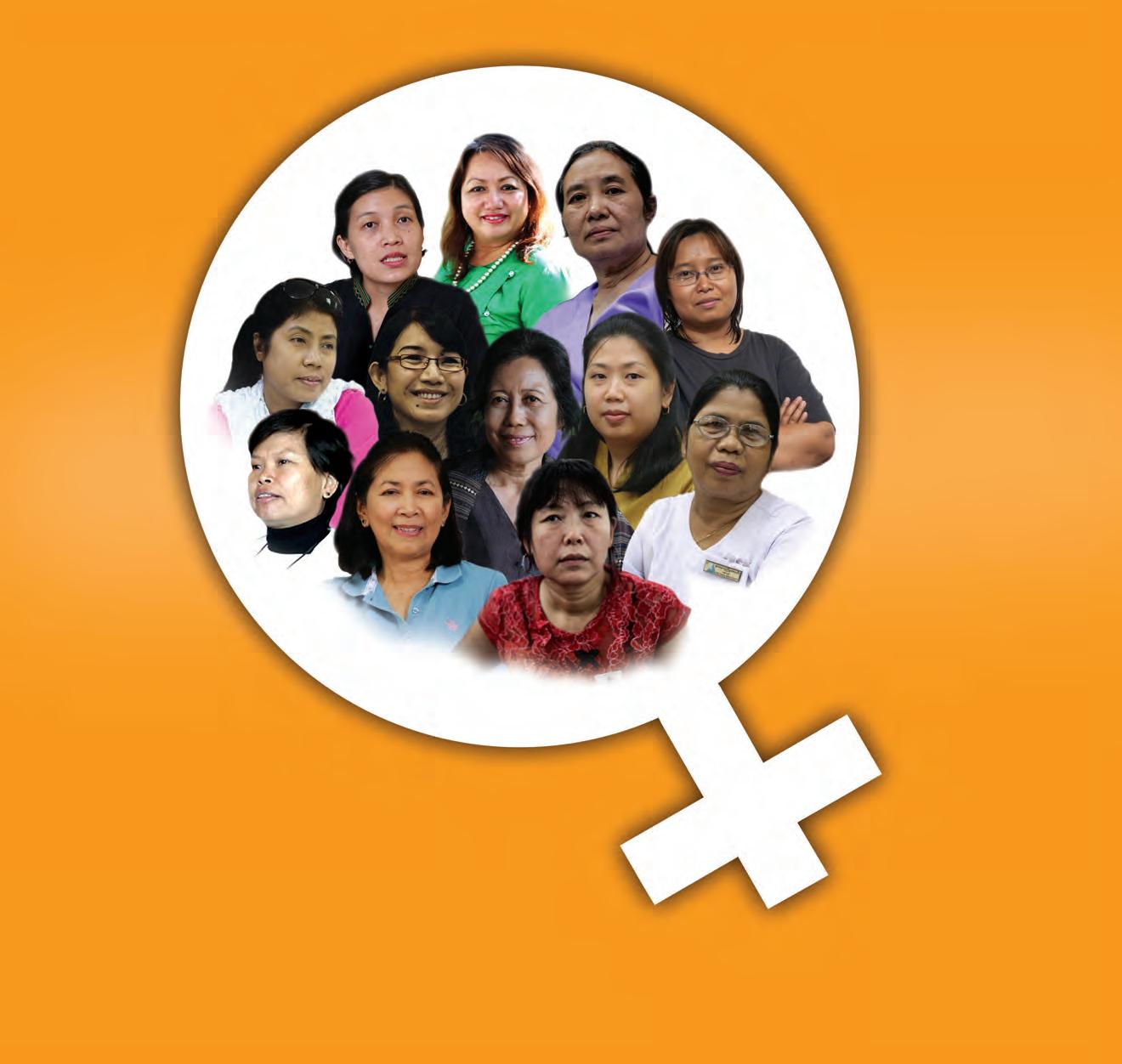
www.irrawaddy.org TheIrrawaddy December 2014 The Phayre’s: Good Food at the Right Price Shan State: Cockpit of Drugs, Guns, Money The Monk Refugee Who Fled to Myanmar Restaurateurs Face Rent, Tax Woes MOVERS AND SHAKERS KUDOS TO WOMEN LIGHTING A PATH HEHO AIR CRASH: THE FALLOUT LOIKAW’S QUIET ALLURE CRUNCH TIME FOR COPYCATS
Feel the superior living of boutique style which blended Modern with Orientral culture. The charm of peaceful atmosphere in the heart of “Chiang Mai” at Sirimangkalajarn Rd. Soi 1, nearby attractions shopping, business and art district at
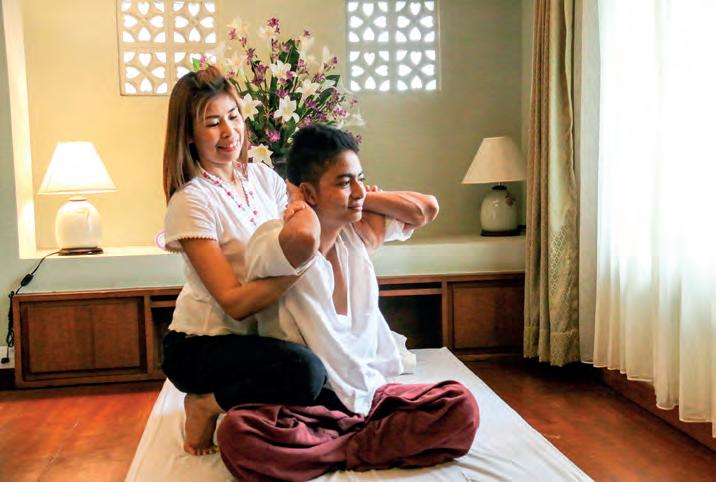




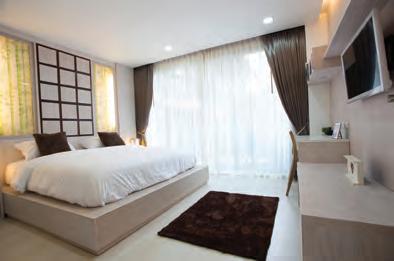
Feel the superior boutique-style living, which blends modern and oriental culture, together with a peaceful atmosphere in the heart of Chiang Mai. On Sirimangkalajarn Road, Soi 1, near the shopping, business and art district around Nimmanhaemin Road, our facilities include a swimming pool with a saltwater chlorination system, fitness, a green area and parking. S Condo is the perfect choice for a convenient lifestyle.










+66 (0)81 672 4214 / +66 (0)
scondosales@gmail.com www.scondocm.com
53 219 300
Sales Gallery at Nimmanhaemin Soi.11 – Sirimangkalajarn Soi.1 Chiang Mai “ S CONDO” Residential Condominium Project Owner: Prattana Properties And Healthcare Co.Ltd. Registered Capital : 50,000,000 Baht. Managing Director : Mr. Surat Leenasirimakul Type of Project : 1 building, 7 storeys with 48 Residential units Location : 7 Sirimangkalajarn Rd. Soi.1 Suthep , Muang District, Chiang Mai 50200. Land Title Deed No: 19774 Approximate Land Area : 1-0-79 Rai. Construction Permission: 305/56 Construction Begins : November 2013 Expected Completion : July 2015. The Project will be registered as a residential condominium upon completion. Swimming pool , fitness , car park are common property of Condominium Juristic Person Regulations. The owner of each condominium unit will pay for common area and sinking fund expenses as stated in the Condominium Juristic Person Regulations.
“Nimmanhaemin Rd.” A perfect choice for convenient lifestyle. Loose your self in our facilities swimming pool with salt clorinated system, fitness, green area and 100% parking.
THAILAND CHIANG MAI
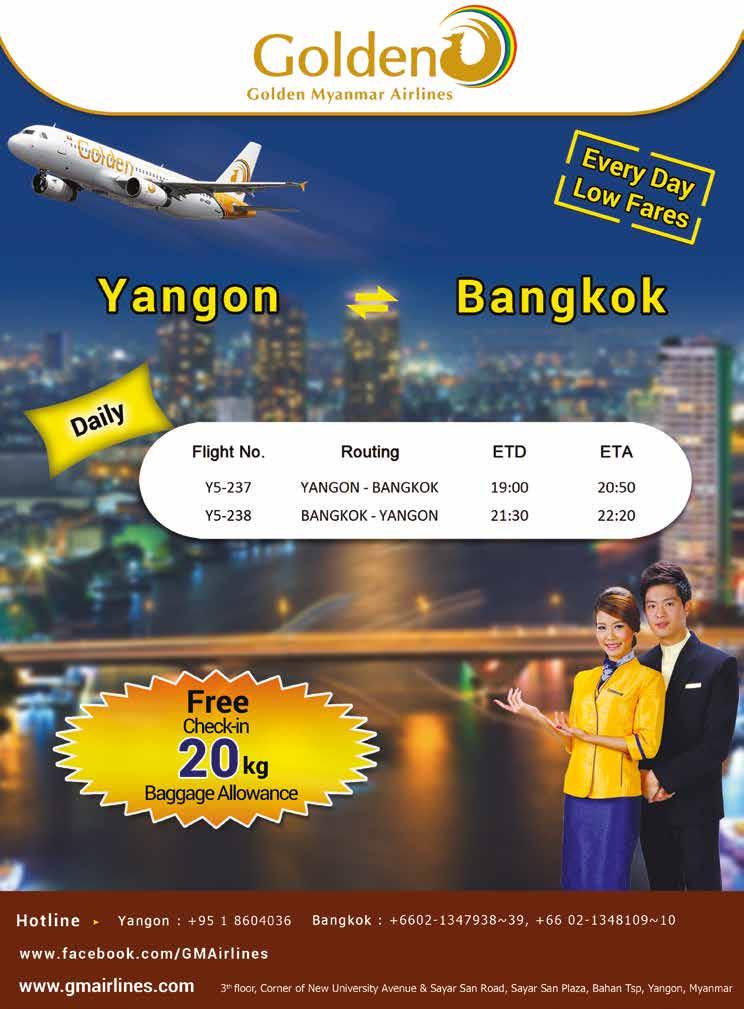










|||
TheIrrawaddy
The Irrawaddy magazine has covered Myanmar, its neighbors and Southeast Asia since 1993.
EDITOR-IN-CHIEF: Aung Zaw
EDITOR (English Edition): Kyaw Zwa Moe
ASSOCIATE EDITOR: Sandy Barron
COPY DESK: Paul Vrieze; Andrew D. Kaspar; David Kay; Feliz Solomon; Sean Gleeson
CONTRIBUTORS to this issue: Kyaw Zwa Moe; Kyaw Phyo Tha; Zarni Mann; Saw Yan Naing; Kyaw Hsu Mon; Nobel Zaw; Yen Snaing; San Yamin
Aung; Bertil Lintner; Simon Roughneen; David Hopkins; Christopher Ian Smith; Simon Lewis; Andrew D. Kaspar; Mark Inkey; Sam Stubblefield; William Boot
PHOTOGRAPHERS : JPaing; Sai Zaw; Hein Htet; Steve Tickner.
LAYOUT DESIGNER: Banjong Banriankit
SENIOR MANAGER : Win Thu (Regional Office)
MANAGER: Phyo Thu Htet (Yangon Bureau)
REGIONAL HEADQUARTERS MAILING ADDRESS: The Irrawaddy, P.O. Box 242, CMU Post Office, Chiang Mai 50200, Thailand.
YANGON BUREAU : Building No 170/175, Room No
806, MGW Tower, Bo Aung Kyaw Street (Middle Block), Botataung Township, Yangon, Myanmar.
TEL: 01 388521, 01 389762
EMAIL: editors@irrawaddy.org
SALES&ADVERTISING: advertising@irrawaddy.org
SUBSCRIPTIONS: subscriptions@irrawaddy.org
PRINTER: Chotana Printing (Chiang Mai, Thailand)
PUBLISHER LICENSE : 13215047701213
HEHO AIR CRASH: THE FALLOUT LOIKAW’S QUIET ALLURE CRUNCH TIME FOR COPYCATS
MOVERS AND SHAKERS
KUDOS TO WOMEN LIGHTING A PATH

4 TheIrrawaddy December 2014 Contents 6 | In Person Up Close With President Barack Obama 8 | Quotes and Cartoon 10 | News Highlights 12 | In Focus 14 | Viewpoint LIFESTYLE 55 | Loikaw's Quiet Allure The still-remote Kayah State capital is an enchanting destination 58 | Get on Your Bamboo Bike An American couple plan a project to build bamboo bikes in Myitkyina 60 | Restaurant: "The Phayre's" A welcome reprieve from the often over-priced fare on offer in Yangon 62 | Book: Lessons from Cambodia? Sebastian Strangio pulls back the curtain on the reign of Prime Minister Hun Sen 64 | Backpage: Ghosts of War Heroic and harrowing times during the Second World War
Vol.21 No.11
COVER DESIGN : Bagyi Lynn Wunna 2014
www.irrawaddy.org TheIrrawaddy December 2014 The Phayre’s: Good Food at the Right Price Shan State: Cockpit of Drugs, Guns, Money The Monk Refugee Who Fled to Myanmar Restaurateurs Face Rent, Tax Woes
FEATURES
16 | Heho Air Crash: Fallout From Flight 11
Almost two years since the fatal Air Bagan flight that claimed two lives, questions over compensation remain
17 |
Heho Air Crash: Stories of Survival
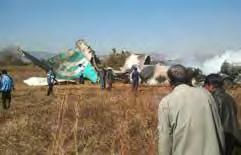
Allan Lokos describes how Buddhist teachings helped him on the road to recovery
22 | Society: The Refugee Who Fled To Myanmar
An exiled monk with a passion for poetry formed an enduring bond with his adopted homeland
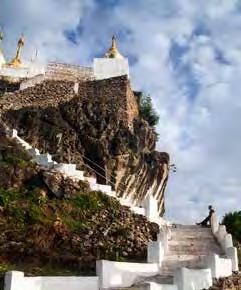
26 | Borders: State of Anarchy
Shan State has long been scourged by war and a proliferation of government-backed militias
32 |
COVER Movers and Shakers
Kudos to twelve women lighting a path
BUSINESS
43 | Intellectual Property: Crunch Time for Copycats?
IPR may soon become a hot issue
46 | Interview: Restaurateurs Face Rent, Tax Woes
Rising rents, higher taxes and foreign competition are challenges for local restaurants, says U Nay Lin of the Sein Lan So Pyay Garden eatery
50 | Signposts: UAB Rides Concerns
REGIONAL
52 | China: Beijing Shows a Softer Side

Moves to placate rivals but root causes of tension remain
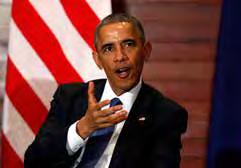
5 December 2014 TheIrrawaddy
P-55
P-43
P-6
P-16
Up Close With President Barack Obama U
Question: In a recent speech to the US Military Academy at West Point, you told your audience that the United States has made a partner of Myanmar without firing a shot. Do you consider Myanmar a foreign policy success of your administration?
Myanmar is still at the beginning of a long and hard journey of renewal and reconciliation. On the one hand, since my last visit there has been some progress, including economic reforms and welcomed political steps, including the release of additional political prisoners, a process of constitutional reform, and ceasefire agreements toward ending the many conflicts that have plagued your country.
On the other hand, progress has not come as fast as many had hoped when the transition began four years ago. In some areas there has been a slowdown in reforms, and even some steps backward. One of the main messages that I’ll deliver on this visit is that the government of Myanmar has a responsibility to ensure the safety and well-being of all people in the country, and that the fundamental human rights and freedoms of all people should be respected. That’s the only way reforms can stay on track. That’s the only way that this country is going to realize greater prosperity and its rightful place in the region and the world.
Q: The United States and Western nations have pinned high hopes on next year’s election. Do you see the 2015 elections as likely to be free and fair?
A: The United States is watching the electoral process very closely. I am not going to prejudge the outcome of an election that has not happened yet. What I will say is that this election will be an important milestone, and the people of your country—and the international community—want it to be credible so that it advances the cause of reform.
The future of your country must be shaped by the people of your country. We believe that you should have the freedom to choose your own leaders. It is not the place of the United States or any other nation to tell you how to decide your future. But together with the international community, the United States is doing our part to help make next year’s election successful. We are working with political parties, civil society and the government of Myanmar to support inclusive, transparent, and credible elections. We are providing significant assistance to help civil society groups engage and educate voters, strengthen the ability of democratic political parties to represent the interests of citizens, and increase Parliament’s legislative capacities. We are encouraging the
government of Myanmar to develop a transparent accreditation process for all election observers, domestic and international, and we will support efforts to administer the election fairly, including domestic election observers.
Q: Myanmar has seen continued ethnic conflict, allegations of widespread human rights violations, continued imprisonment of a large number of political leaders and restrictions on freedom of the press. What is your reaction to that?
A: My message will be that the United States welcomes the progress made in Myanmar toward a nationwide ceasefire and an inclusive political dialogue process, and we are encouraged by the commitment of the government and ethnic groups to continue working toward a durable peace. To succeed, a ceasefire should lead to national reconciliation that strengthens the country and ensures that all ethnic groups can participate in determining their own destiny. Genuine political reconciliation would be a tremendous achievement for all the people of Myanmar, and the United States is engaging all parties to encourage a transparent, inclusive, and legitimate peace process. This will continue to be a difficult and complex undertaking. Building trust after so many years of conflict will take time, and it requires good faith and strength of will on all sides. Skirmishes and other violations of ceasefire agreements put this important effort at risk.
As I said already, even as there has been some progress on the political and economic fronts, in other areas there has been a slowdown and backsliding in reforms. In addition to restrictions on freedom of the press, we continue to see violations of basic human rights and abuses in the country’s ethnic areas, including reports of extrajudicial killings, rape and forced labor. These kinds of abuses represent the painful history that so many people in Myanmar want to move beyond.
IN PERSON
6 TheIrrawaddy December 2014
S President Barack Obama gave The Irrawaddy an exclusive interview ahead of his visit to Myanmar for the East Asia Summit in November. Below is an edited version of the president's responses to correspondent Lalit K Jha. PHOTO: REUTERS
Q: From your perspective, what role does Daw Aung San Suu Kyi have in the future of Myanmar?
A: I was honored to be the first president to welcome Daw Aung San Suu Kyi to the White House several years ago. As I’ve said before, she is an icon of democracy who has inspired people around the world, including me, through her example and her writings. I’ve always admired her courage, dignity and commitment to her country. I was deeply moved by the opportunity to meet with her two years ago at her home, where she displayed such resolve through so many difficult years.
We consult with her very closely on a range of issues regarding the transition
and Myanmar’s future, and we will continue doing that. On this visit, I’m especially interested in hearing her thoughts about the constitutional reform process, next year’s election and how the international community, including the United States, can help ensure that the vote is inclusive, transparent, and credible. She has been a tremendous voice for justice and freedom, and I expect that she will continue to play a key role in her country for many years to come.
Q: Where would you like to see Myanmar 10 years from now? What role do you see for Myanmar in the Asia-Pacific region?
A: Not long ago, few would have imagined the progress and reforms
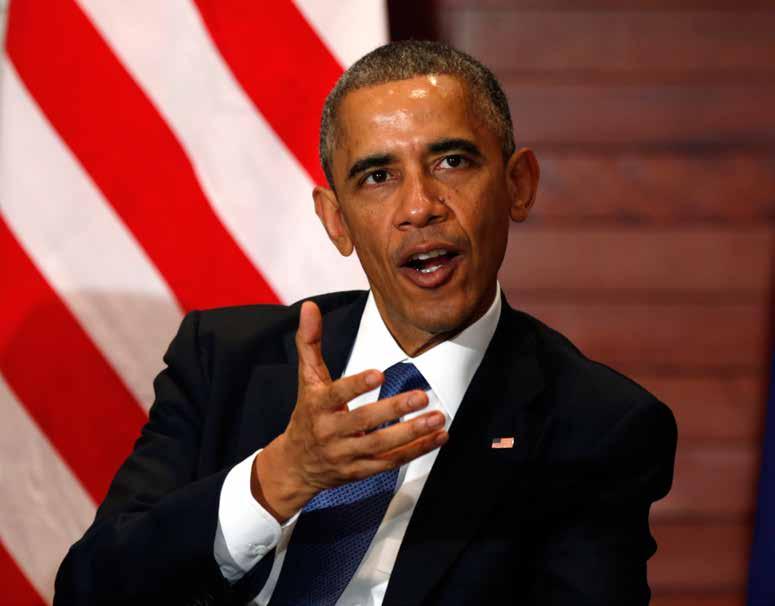
his week-long trip to the region.
we’re seeing in Myanmar today. If the reform process continues and there are meaningful steps on national reconciliation, then a decade from now the 50 million people of Myanmar could see a more prosperous, more democratic nation.
There is still a long way to go, and there is no guarantee of success. But the goal of our engagement is to encourage, support, and help shape the reforms so that the people of Myanmar realize the future they deserve, and so Myanmar assumes its rightful place as a leader in a stable, prosperous, progressive Southeast Asia.
—The full ver sion of this exclusive interview can be read online at www. irrawaddy.org
7 December 2014 TheIrrawaddy
—U Aung Myint of the Renewable Energy Association of Myanmar (REAM) NGO on why investors and developers are failing to win public support for their projects.
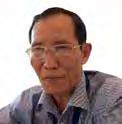
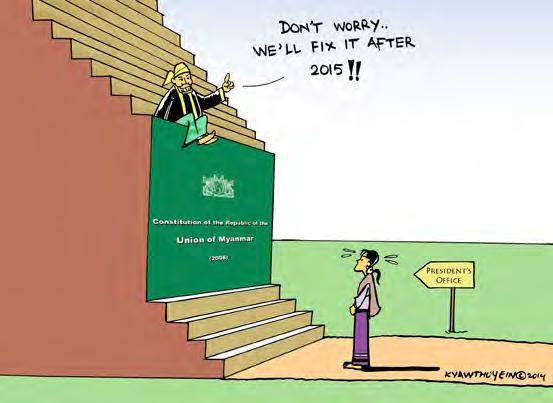
“Oh,
—The response of one of the women clad in colorful ethnic dress who welcomed visitors to November's East Asia Summit in Naypyitaw, when asked which ethnic group she represented. In fact, all the women were Myanmar university students.
QUOTES ILLUSTRATION: KYAW THU YEIN CARTOON 8 TheIrrawaddy December 2014
“Uneducated people like me can find no way to lead a decent life, even if we work very, very hard.’’
—A young Shan sex worker on why he chose his current occupation in a gay ‘‘show bar’’ in Chiang Mai, Thailand, where most of the male dancers are impoverished Shan, Lisu, Lahu and Akha from Myanmar.
‘‘A lot of foreignbacked developments come with Corporate Social Responsibility (CSR) projects…but in reality the investors are liaising with the government, not the local populations.’’
that’s fake! Did you think I was really Kayan Padaung?”
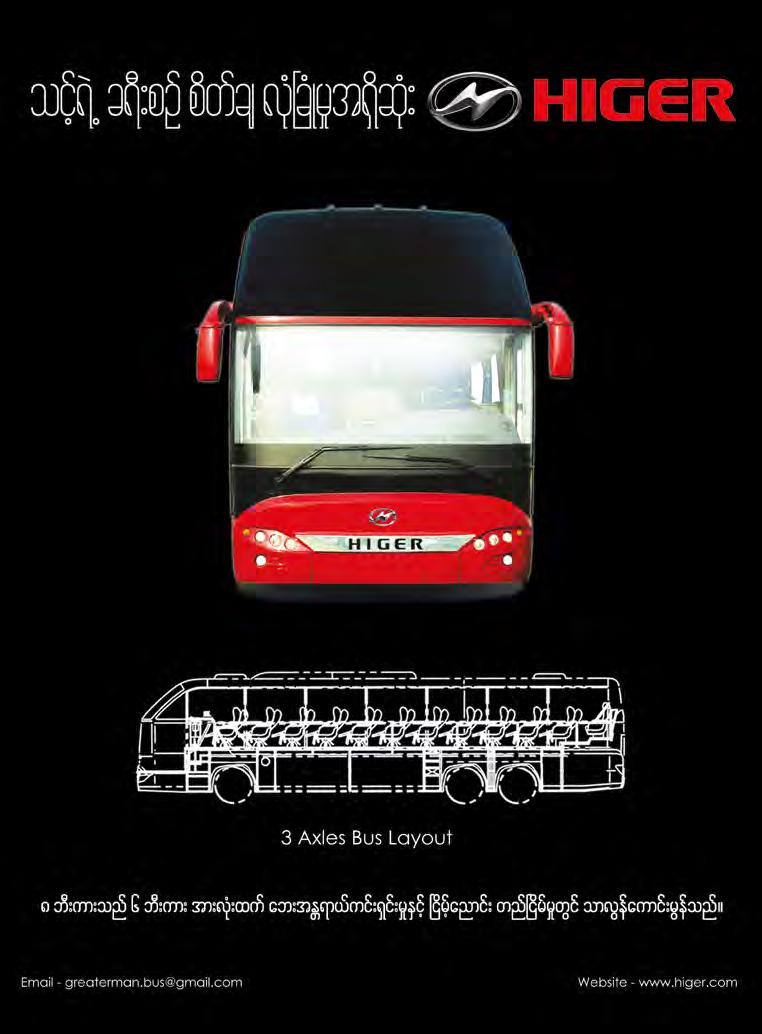
World Leaders in Naypyitaw

On Nov. 12-13, world leaders, including the US, Chinese, Japanese and Indian heads of government, gathered in Naypyitaw to attend the ASEAN and East Asia Summits.
Among the top items under discussion were territorial disputes in the South China Sea, the Ebola outbreak and the terrorist threat posed by the Islamic State group.
The meetings were Myanmar’s last hosting duties as ASEAN chair for 2014. Malaysia assumed the position of 2015 chair at a closing ceremony in Naypyitaw on Nov. 13.
US President Barack Obama was among those leaders who arrived in Naypyitaw on Nov. 12 to attend the summits. During
his three-day visit, he met with President U Thein Sein, Union Parliament Speaker Thura Shwe Mann and other lawmakers and civil society leaders in Naypyitaw, as well as Daw Aung San Suu Kyi in Yangon.
At a joint press conference with President U Thein Sein in Naypyitaw on Nov. 13, Mr. Obama said he was optimistic about political change in Myanmar and called on the country’s top politicians to push on with reform toward a free, inclusive and transparent election in 2015.
“The democratization process in Myanmar is real,” Mr. Obama said, “But in our discussions we recognized that this process is still incomplete.” —Andrew D. Kaspar and Reuters
Commission Probes Journalist’s Killing
The Myanmar National Human Rights Commission has questioned dozens of witnesses, including members of the police and Myanmar Army, as part of its inquiry into the killing of journalist Ko Aung Kyaw Naing and the probe could wrap up “soon,” a commission member said.
U Sitt Myaing, secretary of the commission, said it was awaiting laboratory results from soil tests of the site where the journalist, also known as Ko Par Gyi, was buried after he was shot dead while in custody of the army in Mon State’s Kyaikmayaw Township in early October.
U Sitt Myaing said the commission had collected testimonies from some 45 people, including civilians, policemen and military officers. He said it would also interview the journalist’s wife, Ma Thandar.
Commission members and authorities exhumed the body of the slain freelance reporter in the presence of his family and rights activists on Nov. 5. Witnesses of the exhumation and photos of his body suggested that he suffered multiple severe injuries, including bullet wounds to the skull.
Ko Aung Kyaw Naing was laid to rest in Yangon on Nov. 7. —Zarni Mann
NEWS HIGHLIGHTS ADVERTISEMENT 10 TheIrrawaddy December 2014
Report: Trio Implicated in War Crimes
Three former Myanmar army commanders could be prosecuted for offenses that constitute war crimes and crimes against humanity under the previous military regime, according to a report released on Nov. 7 by Harvard University’s International Human Rights Clinic (IHRC).
Home Affairs Minister Maj.-Gen. Ko Ko, former commander of Southern Command, is implicated in a three-year offensive in Kayin State that displaced some 42,000 civilians and left untold dead, the report said.
Brig.-Gen. Khin Zaw Oo, currently commander of Myanmar Army Bureau of Special Operations No. 4, and Brig.-Gen. Maung Maung Aye, whose position is currently unknown, are also accused of war crimes related to the offensive.
The 78-page report states that IHRC researchers had compiled sufficient evidence to fulfill standards for the issuance of an arrest warrant from the International Criminal Court in The Hague, Netherlands.
In a separate report released on Nov. 6, the advocacy group Fortify Rights accused the military of more recent abuses in northern Myanmar, alleging that military personnel have “targeted, attacked, and killed civilians with impunity in ongoing fighting in Kachin State and northern Shan State.” —Andrew
D. Kaspar
Shwe Mann: No Constitutional Change Before Election
Aung San Suu Kyi from contesting the presidency and give the military a veto over constitutional amendments.
Lower House Speaker Thura Shwe Mann nixed hopes for swift reforms to controversial electoral laws, telling a press conference on Nov. 18 that any changes to the military-drafted 2008 Constitution can only be enacted after next year’s general election.
The comments from the Union Solidarity and Development Party representative and potential presidential contender came a day after most military lawmakers rejected amending Articles 59(f) and 436 of the Constitution, which bar opposition leader Daw
“We will finalize [constitutional debates] on November 25,” Thura Shwe Mann said. “The draft laws submitted by Union Parliament will be decided and approved next week in parliament.”
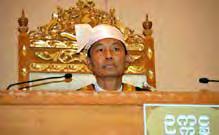
“Some changes will need a referendum, which will be held in May 2015. Where this results in amending the Constitution, they will be approved after the 2015 election.”
Any amendment to the constitution must have the support of more than 75 percent of both houses of Parliament, giving the military, with a reserved allocation of 25 percent of all parliamentary seats, an effective veto over any proposal. —Yen Snaing
Students Slam Education Law, Demand Dialogue
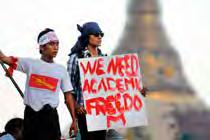
Hundreds of students protesting a controversial education law suspended their demonstration in Yangon on Nov. 17 and gave the government 60 days to respond to their demands.
The student activists threatened to turn out in greater numbers if they didn’t hear from education officials in that time.
The students’ 15-member Democracy Education Initiative Committee requested that its members, the National Network for Education Reform, the government and parliamentarians meet to address their grievances.
More than 300 representatives from students’ organizations across the country began their four-day
protest against the legislation on Nov. 14.
“Starting today and for the next 60 days, if the government and responsible persons will not come and negotiate with students, we will increase our protest strength,” read a statement released by the students on Nov. 17.
The Ministry of Education held a press conference on Nov. 18 and urged the students to come to the negotiating table with the government’s Education Promotion Implementation Committee, which drafted the legislation.
“I want them to negotiate freely and transparently,” Minister of Education Khin San Yee said at the press conference.
Protestors said the current law would fail to raise education standards in Myanmar, restrict local autonomy in favor of centralized government control of education institutions and prevent the official recognition of student unions.
—Nobel Zaw
11 December 2014 TheIrrawaddy
Union Parliament Speaker Thura Shwe Mann
PHOTO: THE IRRAWADDY
Students protest the National Education Law in Yangon on Nov. 16.
PHOTO: STEVE TICKNER / THE IRRAWADDY
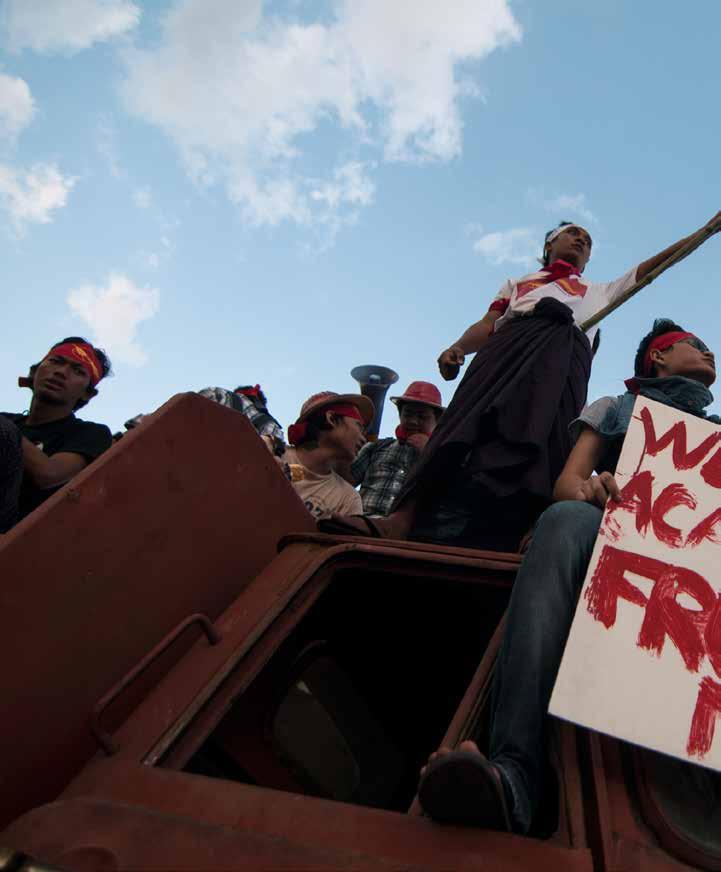
12 TheIrrawaddy December 2014
Education Protests
More than 300 representatives from students’ organizations across the country held a fourday protest in Yangon in November against the National Education Law which they said had gone ahead without adequate consultation. In response, the Ministry of Education invited the students to enter a dialogue with the government’s Education Promotion Implementation Committee, which drafted the law.
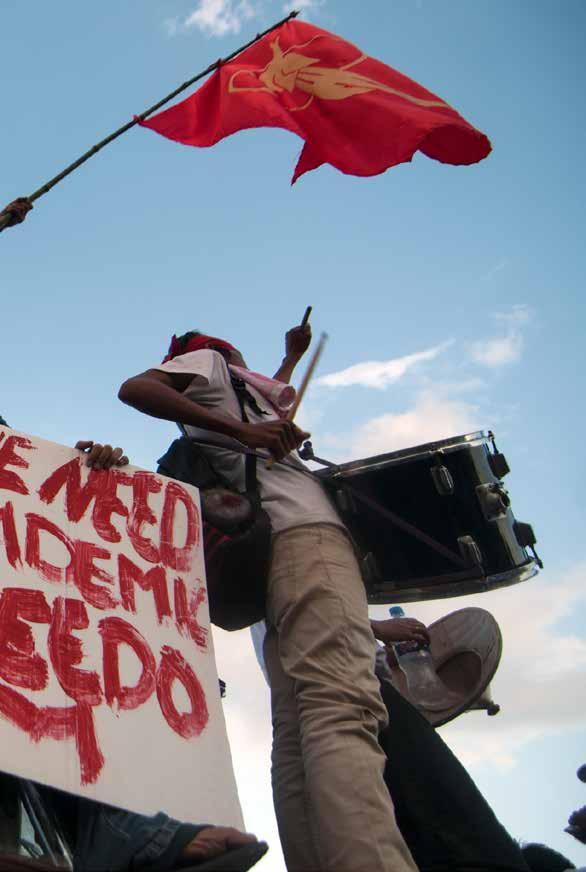
IN FOCUS
13 December 2014 TheIrrawaddy
PHOTO: SAI ZAW / THE IRRAWADDY
The Shape of Things to Come
Hope deferred may be the legacy of 2014, but the desire for a just society will not diminish
By KYAW ZWA MOE / YANGON
The legacy of 2014 will shape the year ahead. After many ups and downs—more downs than ups—this year, it appears likely that many of the high hopes we had for 2015 will not eventuate. This is not encouraging, but it’s realistic. As usual, Myanmar people will hope for the best but be prepared for the worst—an outlook they have grown accustomed to over generations.
Next year will be crucial for Myanmar with the general election scheduled to be held later in the year. The result, if the election is held as scheduled, will determine whether Myanmar turns a new page or reverts to the status-quo.
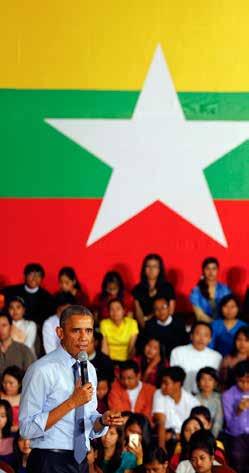
We still can’t say for sure whether the election will be free and fair. But judging by the current state of political affairs, the people of Myanmar are highly unlikely to see come to fruition what they have dreamt of for decades—a free, prosperous and democratic society.
Today Myanmar is recovering after almost 50 years under one of the world’s most repressive regimes which lasted from 1962 until 2011. But it remains in old hands. President U Thein Sein is no longer a general but he was one of the

highest ranking members of the former junta. Most of his cabinet members are current or former military officials. In Myanmar’s new political order, the military retains its stranglehold over the executive and legislative arms of government.
The international community is convinced that Myanmar is marching toward democracy. But the majority of locals share a different view. For them, the country is travelling toward the “Burmese way to democracy,” much like the “Burmese way to Socialism” that the late dictator Gen. Ne Win introduced in the 1960s.
Snr.-Gen. Than Shwe, who is the architect of the current reform process, called it “discipline-flourishing democracy.” President U Thein Sein, his successor, has evolved the rhetoric to suit international expectations, emphasizing the country’s progression towards “democracy.” What seems clear in all these conceptions is that the military retains its powerful political position.
The military-drafted, undemocratic 2008 Constitution helps safeguard the military’s political preeminence. Any proposed amendments which would
undermine their central role will not be achieved without a fight.
Faced with mighty resistance from the establishment, attempts by opposition leader Daw Aung San Suu Kyi and other pro-democracy groups to amend the Constitution over the past three years have been in vain. They are losing the political battle.
The main task of Daw Aung San Suu Kyi and her party, the National League for Democracy (NLD), which won 43 of 44 seats contested in 2012 by-elections, was to amend the Constitution ahead of the 2015 election. Daw Aung San Suu Kyi and her supporters had hoped to amend undemocratic clauses, including article 59(f) which bars her from being president because her two sons are foreigners.
These hopes now appear all but dashed. In November, lower house speaker Thura Shwe Mann, himself a former powerful military general, stated publicly that constitutional amendments would only be possible after the 2015 election.
In other words, the year 2015 won’t see Daw Aung San Suu Kyi become president even if her NLD party wins by a landslide in the election. In that
VIEWPOINT
14 TheIrrawaddy December 2014
scenario, the opposition leader doesn’t seem to have a plan B as to whom else within her party could take the lead. We haven’t yet seen any qualified candidate emerge.
Opposition groups in general have never been in a position of ascendancy in this political game with the ex-junta and the current nominally-civilian government. They have all been forced to compete and cooperate within a political framework designed by successive military governments.
Quite simply, at present, the military government is as strong as ever while the opposition remains weak—having been curtailed by the government, the military and the ruling party at every turn.
That’s one of the reasons for the international community’s policy shifts over recent years. They are convinced that the current power holders constitute the only institutions that can change the country. Many western countries are now working to coax the three key power bases, government, military and
parliaments, towards gradual change. It’s not exactly an easy task.
Imagine if they can persuade the military to reform itself into a professional force, return to barracks and quit its current roles in Parliament and in the ministries. We can imagine— but clearly this is not the military’s aim or intention. A basic principle of the Constitution’s first chapter clearly states that the country’s abiding objectives include enabling the defense services to participate in national political leadership.
Myanmar’s military has never been fit to govern, but the country has had consecutive military leaders since the 1962 coup. If the military returned to the barracks, Myanmar might achieve something like normalcy. But this is unlikely to happen over the next decade.
Meanwhile, under this militarydominated leadership, attaining peace with ethnic armed groups is proving difficult. On Nov. 19, the government’s troops fired on an area near the headquarters of the Kachin
Independence Army, killing 23 rebel cadets and injuring 20 more in northern Kachin State. Given such a hostile attack, little ameliorated by the army’s subsequent apology, the peace process between the government and ethnic armed groups looks set to go nowhere in the near future. For the peace process to work, trust has to be built. At this point, many ethnic leaders do not seem to trust either the military-dominated government or the military itself which has long stifled their desires for autonomy.
Preside nt U Thein Sein, leaders of the military and house speakers recently held an unprecedented meeting with Daw Aung San Suu Kyi and a few other political leaders. But the gathering clearly wasn’t the dialogue many wanted. Critics saw the meeting as a show-off exercise ahead of US President Barrack Obama’s second visit in November.
For people on the ground, economic reforms have delivered little so far. Former power structures remain largely intact. Military-owned companies and cronies still monopolize the most lucrative industries. Business concessions are still not transparent.
Still, we have to admit that today Myanmar has more room for all stakeholders than under the former military regime. It is something. At the same time, we know well that the reform process in 2014 no longer looks as promising as hoped. As Daw Aung San Suu Kyi said in early November, “…this reform process started stalling early last year.’’
Myanmar people do not expect miracles from the reform process that started in 2011. They just want to see gradual, genuine progress towards a democratic and prosperous nation. Such progress was lacking during 2014.
When the people of this country suffered from oppression for decades under the former ruthless military dictatorship, hope was kept alive by the philosophy that everything is impermanent. The unfinished struggle for a just society will carry on in 2015.
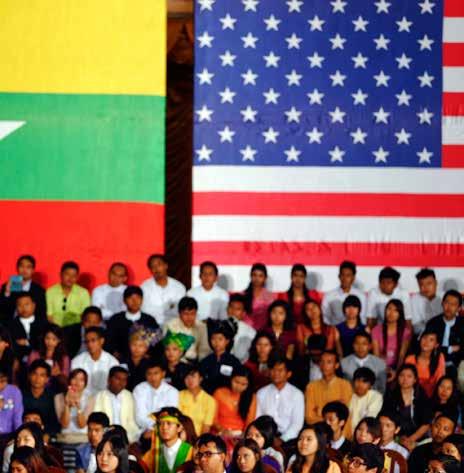
15 December 2014 TheIrrawaddy
Kyaw Zwa Moe is the editor of the English-language edition of The Irrawaddy.
PHOTO: REUTERS
Young people from Myanmar and the region gathered to hear US President Barack Obama deliver a message of encouragement for the future at a Young Southeast Asian Leaders Initiative Town Hall at Yangon University in Yangon on Nov 14.
Fallout From Flight 11
Almost two years since the fatal Air Bagan flight that claimed two lives, questions over compensation remain
By SIMON LEWIS / YANGON
When Air Bagan Flight 11 took off on Christmas morning in 2012, Allan Lokos had no qualms about flying with the local airline.
“There may have been a few clouds in the sky but certainly it was pretty much an ideal day for flying,” Mr. Lokos recalled by phone from his home in New York City.
The 100-seat Fokker 100 aircraft was bound from Mandalay to Heho, Shan State and was carrying more than 60 passengers.
On the approach to the airport that serves tourists traveling to Inle Lake, the plane hit electrical cables and crashed to the ground, in what was later judged by Myanmar investigators to be pilot error.
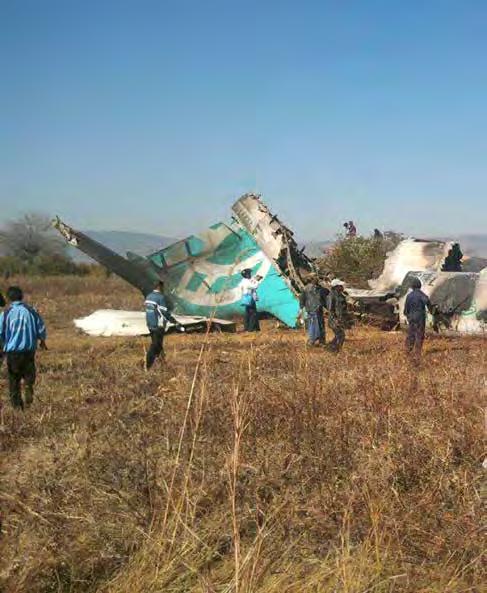
Ma Nwe Lin Shein, a tour guide for Mr. Lokos and his wife, was killed in the crash. A local motorcyclist, U Pyar, also died after the plane careened into him.
The injured included Mr. Lokos and his wife Susanna Weiss, five Myanmar tour guides, the passenger of the motorbike driven by U Pyar, and two Australians.
The crash revived questions about the safety of flying in Myanmar, but it also highlighted how the lingering effects of the country’s isolation meant that those flying with local airlines did not have the same protections they would receive elsewhere.
16 TheIrrawaddy December 2014
FEATURE
People gather at the wreckage of the Air Bagan passenger jet that crashed in Heho on December 25, 2012.
Stories of Survival
Allan Lokos describes how Buddhist teachings helped him on the road to recovery
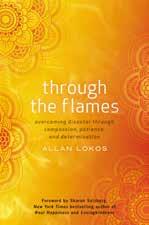 By THE IRRAWADDY
By THE IRRAWADDY
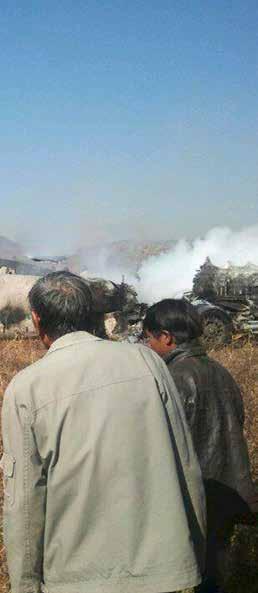
Two years ago, before the Heho crash, Allan Lokos, 73, was enjoying a late-blooming career as a meditation teacher in New York City.
His recently published books on cultivating patience and equanimity had found an audience in the fast-growing American market for insights drawn from Buddhism.
The New York Times had solicited the former Broadway singer’s ideas for a story on how to have a peaceful travel experience. Dozens of people were showing up each week for talks at the community meditation center Mr. Lokos founded on Manhattan’s Upper West Side.
The center’s other teachers included well-known figures from the Buddhist fraternity in the US, including Stephen Bachelor and Mr. Lokos’ friend and teacher Sharon Salzberg.
Along with Jack Cornfield and Joseph Goldstein, Sharon Salzberg founded the Insight Meditation Society (IMS) and its influential retreat center in Barre, Massachusetts in 1976.
The three had each come to Buddhism after spending time in monasteries in Southeast Asia where their teachers included figures such as Sayadaw U Pandita and S. N. Goenka from Myanmar. Together with Tibetan and other monks and figures such as Jon Kabat-Zinn and Mark Epstein, the IMS founders are credited with helping drive the remarkable rise and adaptation of Buddhist thought in the US in recent decades.
As later arrivals with a growing place in that broad church, Mr. Lokos and his wife Susanna Weiss were excited in 2012 to be visiting a country with long-held Buddhist traditions.
And then Heho happened. All Mr. Lokos’ earlier thinking and training to do with cultivating higher mental qualities would be put to a terrible test.
Because of what Mr. Lokos has referred to as the “benevolent brain,” he had no awareness at the time of the horrific injuries he had sustained
17 December 2014 TheIrrawaddy
2012.
Allan Lokos' book on the Heho crash and its aftermath will be released in Febuary 2015.
PHOTO: REUTERS/STRINGER
Aftermath
As he escaped the smoking wreckage, Mr. Lokos suffered serious burns to about a third of his body and was in a critical condition.
Air Bagan founder U Tay Za quickly stepped in to help, flying Mr. Lokos to Bangkok and then to Singapore and assisting with significant immediate hospital and transport costs before Mr. Lokos and Ms. Weiss arrived back in the United States.
Later, relations stalled and the American couple filed a lawsuit in San Francisco against the airline and the Htoo Group, of which U Tay Za is chairman. The legal wrangling ended last May after a hefty settlement was agreed.
The scale of the payout to Mr. Lokos and Ms. Weiss has not been disclosed, although Mr. Lokos’ medical bills
alone were more than US$1 million. Myanmar media has reported that the lawsuit was for $10 million.
Others who were injured have not yet secured full compensation, while relatively small payouts have been reported to the families of the deceased Myanmar citizens.
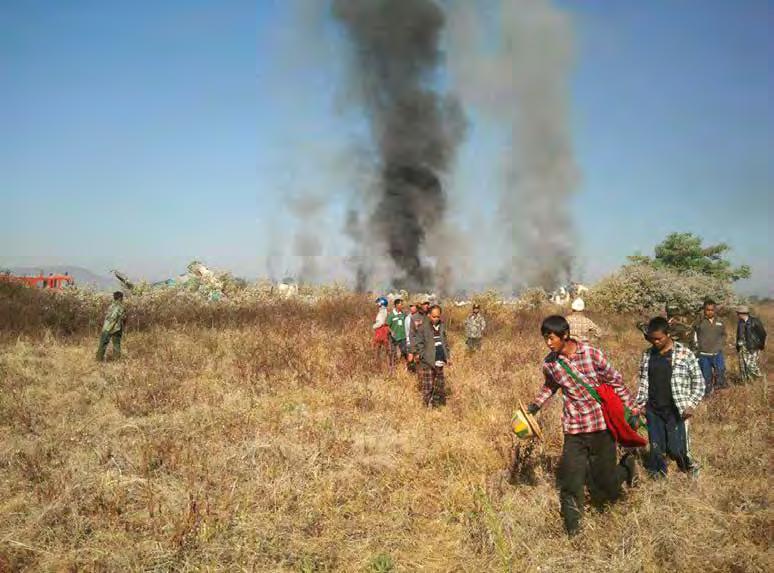
As well as payments of unspecified amounts that were made by the
airline to some victims shortly after the crash, in August last year the Htoo Foundation announced on its website that it had donated 50 lakhs (US$5,000) to the family of the deceased U Pyar and 2 lakhs ($2000) each to his four siblings. A total of $5,000 was donated to U Pyar’s nephew and burn victim, Ko Htay Aung.
FEATURE
People gather at the crash site
A lawyer said that clients’ problems are linked to the fact that Myanmar has not signed up to international aviation conventions
PHOTO: REUTERS / STRINGER
In March this year, U Tay Za said on his Facebook account that Singapore re-insurers had offered $10,000 to a local burn victim who was not named.
Two injured Myanmar tour guides who admitted to understanding little about the insurance business say they have not yet received insurance payouts they had heard would be forthcoming.
Ma Toe Toe Khin from Taunggyi who experienced burns to around 10 percent of her leg area and a spinal fracture, said the airline has paid all her medical bills as well as a one-off payment of 20 million kyat (approximately $20,000) soon after the incident.
She said that around six months ago she and another injured female guide who is also still out of work received phone calls from the airline saying that insurance payouts would be forthcoming, but they have not heard anything since.
Tour guide Ko Myint Htwe, who has returned to work after suffering minor head injuries in the accident, reported that he had received a similar call.
All the guides stressed that they cast no blame for the accident and expressed gratitude to the airline for the help they had so far received.
Two Australians were also injured but have not received compensation, according to Joseph Wheeler, senior solicitor at Shine Lawyers in Brisbane, Australia, who is representing them.
T he two did not initially seek legal assistance in the hope that the airline and its insurers would pay them compensation in good faith, he said. When help was not forthcoming they sought advice, but only after a one-year statute of limitations in Myanmar had expired.
Mr. Wheeler said by email that his clients were “still strongly affected by the horrors they experienced on the date of the accident,” but would not give details of the injuries they sustained.
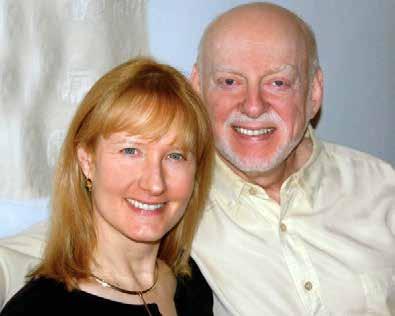
The legal options remaining for his clients are now “limited to nil,” he said. “Principally we will be pressing the airline’s insurer to make an ex gratia [voluntary] payment to our clients that is reflective of their losses.”
from the flames that engulfed the plane. Parts of his septuagenarian body had been burnt away to the bone. Swathes of fried flesh flapped about when he moved, horrifying onlookers at the scene. The first doctors to see him said he could not survive.
But there was no escape from awareness during the subsequent ordeals in burn units in hospitals in Bangkok, Singapore and New York as surgeons and others worked to patch him back together.
In a new book due out in early February 2015, Mr. Lokos describes how qualities such as mindfulness that had been instilled in him during Buddhist practice helped him to pull through.
“Through the Flames: Overcoming Disaster Through Compassion, Patience and Determination,” will be released in the US by Penguin/ Random House.
Mr. Lokos says the book is generating a fair share of “excitement,” perhaps for the same reasons more people are attending his talks this year.
“I think it’s about the fact that someone actually survived what all logic and all medical opinion said could not be done. Perhaps it’s reassuring for people to know that if something really bad happened to them, they too could survive.”
He hopes the book will prove helpful to others struggling in tough situations against the odds.
The point, he says, is that people “can come back.”
Telling the story was “essential” for two reasons.
“One, I’m asked about it constantly. Secondly, it establishes that I really have been there with you [the reader]—you who are going through chemo right now, you who has suffered a great loss in an accident.”
This is one advice book unlikely to make readers think, “Well yes, this is all well and good, but you don’t know what it’s like to go through this.”
Yet Mr. Lokos realized that though he came through his shattering experiences fairly positively, not everyone in a crisis will be that fortunate.
So he interviewed four others suffering traumatic events whose experiences were different.
“I wanted to be able to talk through those people as well. My view is, we’re all in this together.”
19 December 2014 TheIrrawaddy
PHOTO
Allan Lokos and his wife Susanna Weiss
COURTESY ALLAN LOKOS
More Hurdles
Other issues have contributed to the complexity of the settlements process.
U Tay Za’s listing on the US Treasury Department’s Specially Designated

Nationals (SDN) “blacklist” was a barrier to negotiations for Mr. Lokos and Ms. Weiss—the Americans had to obtain special permission from the Treasury just to negotiate with Air Bagan.
In Australia, Mr. Wheeler said his
clients’ problems are linked to the fact that the Myanmar government hasn’t signed up to international aviation conventions.
Myanmar is not party to the 1999 Montreal Convention, which ensures that passengers involved in air crashes receive compensation without having to prove willful neglect by the airline.
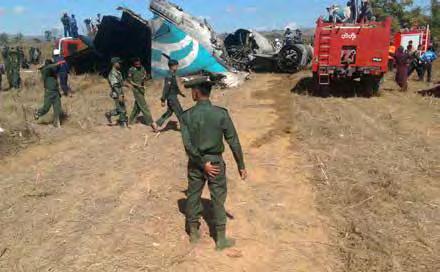
Under the convention which is widely in force internationally, victims are entitled to compensation arising from physical injuries, pain and suffering, lost wages, medical bills, damaged luggage and other economic losses.
They are also entitled to compensation for emotional distress, if this is accompanied by physical injury.
“The fact that the Government has not signed these most consumer friendly and passenger friendly treaties betrays the fact that it is well behind the rest of the world in using the key legal tools available to make the skies safer for its citizens and
20 TheIrrawaddy December 2014 ADVERTISEMENT
FEATURE PHOTO:
Soldiers stand at the crash site of the plane.
REUTERS/STRINGER
travelers alike,” Mr. Wheeler told The Irrawaddy.
“The fact that the liability treaties have not been ratified also indicates to me that other aspects of air safety regulation internationally are likely not well understood or implemented in the country.”
Eric Rose, a partner at Herzfeld Rubin Meyer & Rose, which represented Mr. Lokos and Ms. Weiss, concurred that the crash had exposed failings in the way Myanmar interacts internationally.
“Right now, Myanmar is reentering the world community which already has international rules having to do with airline safety, with compensation for injuries suffered by airline passengers on foreign carriers,” Mr. Rose said.
“It raises serious questions to be asked as to whether all passengers on an airline in Myanmar should be treated equally, irrespective of whether they are American or Myanmar or Australian or any nationality.”
Safety concerns
Although there has not been a fatal air accident since the Air Bagan crash, the safety record of domestic Myanmar airlines is less than impressive.
According to the Flight Safety Foundation, 100 people have been killed in aviation accidents in Myanmar since 1988, and non-lethal incidents, like planes overshooting an airstrip, are relatively frequent.
Anthony Philbin, communications chief at the International Civil Aviation Organization, said that since the Montreal Convention is not signed by Myanmar, national law applies in air crash legal cases.
He insisted, “Aviation is the safest form of transport. Conventions pertaining to accidents and victims in no way impacts the technical, operational and other provisions which are in place to mitigate risks and keep passengers and crews safe.”
Air Bagan did not respond to a request for comment on this story.
The story may be stirring but Mr. Lokos’ words are measured.
“What happened was, I went on a vacation, I got on a plane, the plane had an accident, I was injured. Those are the facts. There was a lot of disruption after that but the reality is pretty straightforward, even though it’s dramatic.”
His personal struggle was not that unusual, he says. “I don’t take any credit for that, I did exactly what anyone else would do… I tried to survive.”
Like Mr. Lokos, some Myanmar survivors also harbor no blame today for their misfortune and take refuge in Buddhist teachings.
Tour guide Ma Toe Toe Khin, who suffered leg burns and a damaged vertebra, said of herself and a fellow female injured guide, “We are Buddhists. We believe we experienced bad luck because of our karma.”
She added: “The thing which had to happen, has already happened. All we need now is to take care of ourselves and try to recover fast. As in the Buddha’s sayings, everything happens for a reason.”
Ma Toe Toe Khin, who is still not well enough to return to work, commended the airline for assisting with the guides’ medical expenses. Tour guide Ko Myint Htwe, who experienced what he called minor head injuries, felt similarly. “I just took the incident as my karma. After the accident, I went to the pilots and gave my thanks to them. Everyone makes mistakes. Perhaps, if not for them and how they landed the plane, everyone on board could have died.”
Recovery, still a work in progress for the survivors, isn’t all about religion and philosophy. Humor may also be a part of the medicine.
Says Mr. Lokos: “My hands are what I deal with mostly. I wear compression gloves that help to reduce the scars. I have no finger prints on either hand. If I were a criminal I’d be in great shape.”
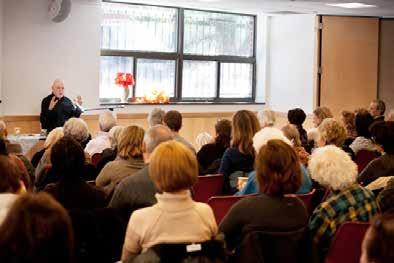
21 December 2014 TheIrrawaddy
Simon Lewis and Zarni Mann contributed reporting.
Additional reporting by Zarni Mann.
Lokos teaching at the Community Meditation Center in New York
“We are Buddhists. We believe we experienced bad luck because of our karma.”
–Ma Toe Toe Khin
PHOTO COURTESY ALLAN LOKOS
The Refugee Who Fled To Myanmar
An exiled monk with a passion for poetry formed an enduring bond with his adopted homeland
By KARIN DEAN / YANGON
As a poet, monk and political exile, Friedrich Lustig— known in Myanmar as Ashin Ananda—acquired a unique understanding of his adopted homeland.
If you go to the Shwedagon and ask some older monks about Friedrich Lustig, they will know him—such is the popularity of this extraordinary foreign monk who spent forty years in Myanmar, and was allowed to live at the Shwedagon Pagoda by Gen. Ne Win.
Even as far away as Kachin State, near Myitkyina, when I asked a Catholic priest about Friedrich Lustig, he told me: “Yeah, Lustig… I often met him in Rangoon! His Burmese name is Ashin Ananda.”
Ashin Ananda, a devout Buddhist, was especially effective in publicizing Myanmar poetry and traditional music among English-speaking audiences. He died in 1989, and his ashes were kept at Mohnyin Kyaungdaik monastery at the Shwedagon until they were transferred to a cemetery.
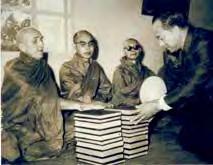
However, he was not originally, as you might think, an enthusiastic Westerner in search of Enlightenment far away from home. Instead, he was a man to whom Myanmar—as ironic as it might sound—had granted political asylum.
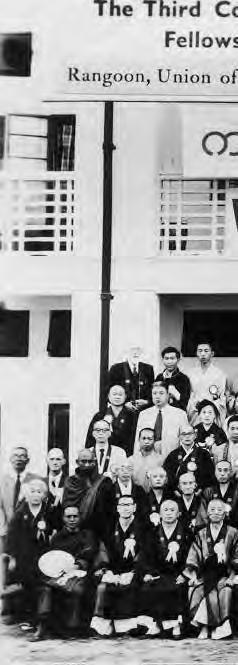
He entered Myanmar from Thailand on Sept. 8, 1949, and was granted asylum by then prime minister U Nu. Before that, he had stayed in Thailand
for over a decade, during which his native country, Estonia, was annexed by the Soviet Union and his passport became invalid.
A strong anti-communist, he preferred to be a man without a country than carry a Russian passport. When Gen. Ne Win’s military dictatorship came to power, and foreigners were forced to leave, Ashin Ananda got permission to stay because of this peculiar situation. Gen. Ne Win appreciated his anti-communist stance and asked him to write articles denouncing communists in The Working People’s Daily and The Guardian—which Ananda happily did for ten years.
This even earned him a military pass allowing travel anywhere in the country, including such off-limits areas as the Naga Hills. “I am not sorry for what I did. I wrote everything with a clear conscience,” Ashin Ananda said
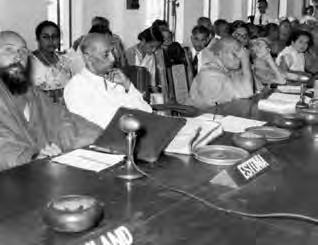
22 TheIrrawaddy December 2014 FEATURE
Lustig representing Estonia at the Third World Fellowship of Buddhists' Conference in Yangon in 1954
Lustig in Yangon
PHOTO FROM LUSTIG’S PRIVATE COLLECTION, COURTESY MAIT TALTS
PHOTO: LUSTIG’S PRIVATE COLLECTION
later to a foreign journalist.
Considering the fate of his tiny Nordic country, Estonia, which was engulfed by the communists in 1940, resulting in 25 percent of the one million Estonians being persecuted— either killed, sent to Russia’s prison
camps or forced to escape abroad— Lustig probably wrote those anticommunist pieces with satisfaction, if not with pleasure.
It seems that he did indeed find a sanctuary in Myanmar, not only because he was allowed to stay, but also because he became sincerely attached to the land and its beauty. Although he followed the teachings of Lord Buddha devoutly, his real passion was for the country’s poetry, and he himself expressed his love for Myanmar best in poetry. He received the title of US Lilac Laureate poet in 1968.
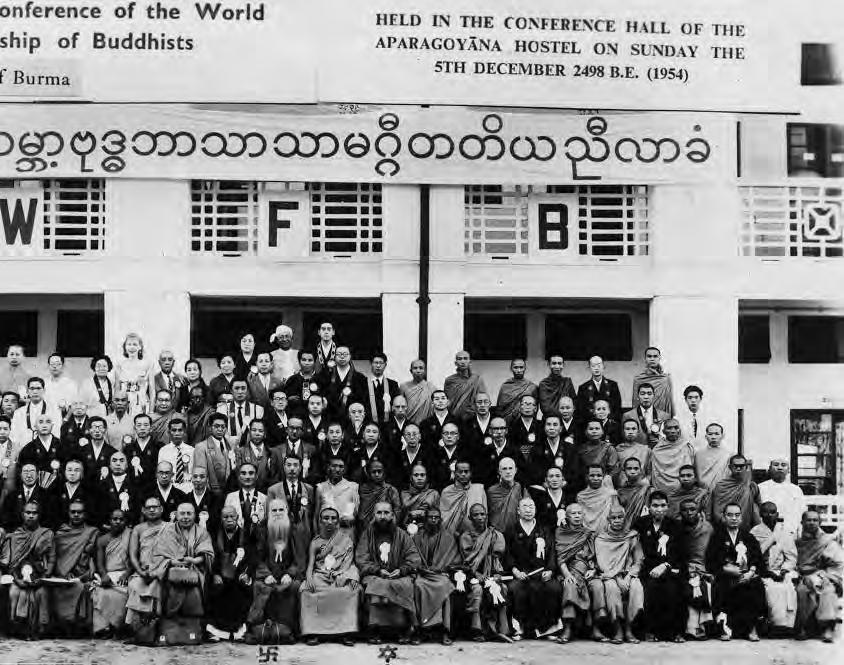
“I came to like his poems because he was always expressing great love for Burma and Burmese culture… His poems are written in the classical style, his rhythmic and metric scheme is faultless. His writings were always meant for the betterment of people, to make them more compassionate, gentle and thoughtful,” wrote Khin Soe,
a former civil servant, in his foreword to Fifty Selected Poems, a collection of Ashin Ananda’s poems published over years in The Working People’s Daily, The Guardian Daily and in the Guardian Magazine.
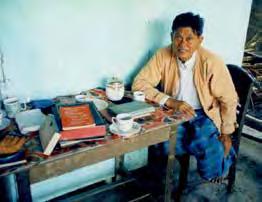
Wrote Ananda: “I love this land, and clouds that drift, And flags that flutter in the wind, And men who gladly give a lift, To strangers and are not thin-skinned” (From The Land We Love). Though the many landmarks of Myanmar, such as the Shwedagon, Bagan and the Ayeyarwady River, received special attention, most of Ashin Ananda’s poems were daring, personal reflections of his depression and joy, his likes, dislikes and temptations.
The titles of some of his poems spoke for themselves: “That Inner Urge,” “Likes And Dislikes,” “Open Mind” and “The Ups And Downs.” In “I Snap My Fingers At Temptation”
23 December 2014 TheIrrawaddy
Lustig’s disciple U Aung Khin at his home on the outskirts of Yangon in 2004, displaying books written by Lustig.
Attendees at the Third World Fellowship of Buddhists’ Conference in Yangon in 1954. Lustig is in the front row, 11th from the right.
PHOTO FROM LUSTIG’S PRIVATE COLLECTION, COURTESY MAIT TALTS
PHOTO: K. DEAN
he wrote: “The inner mind may be perverted. Not all who listen truly hear. One’s strength must firmly be exerted, If one desires to stay austere.”
He saw no reason to be ashamed or embarrassed for possessing these worldly feelings—as long as one stood firmly on the Buddhist path, such experience would only make one stronger, was Ashin Ananda’s message. He felt the most important things were meditation, avoidance of attachments in daily life and following the teachings of Lord Buddha.
Ashin Ananda, then Friedrich Lustig, was born in Estonia in 1912. At a young age he became regarded as a child prodigy because of his talent as a pianist—he could play difficult pieces by famous composers such as Chopin, Liszt and Rachmaninoff. He earned money to pay for his education by
playing the piano at the best cinema in his hometown, Narva.
These were the days of silent movies, and he had to decide quickly which tune was suitable for each scene on the silver screen. “In later years I realized that period of my life was very useful for me, for it enriched my imagination and encouraged me to compose good poetry,” Ashin Ananda wrote in his “Brief Sketch of My Life.”
He discovered Buddhism through a book, and then wrote a letter to the Dalai Lama in Tibet, who advised him to get in touch with a guru in Latvia, the Reverend Karlis Tennisons. The two of them were invited to Thailand as representatives of the Baltic Buddhist community by visiting prince Aditya Dibya-Abbha, who was on an official state visit to Estonia in 1930, prior to the country’s occupation by the Russians.
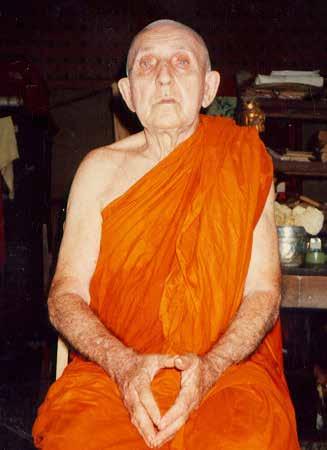
Two years later, Ashin Ananda ordained as a monk. Before leaving Europe for Thailand, he studied Sanskrit, Tibetan and Chinese at the University of Paris. Together with his guru, he then sailed on the French liner Desirade to Singapore and continued on to Thailand.
“My guru and I were treated extremely well,” wrote Ashin Ananda in his life sketch. “We stayed in several royal monasteries, including Wat Phra Chetuphon near the Grand Palace.”
He spent the years 1935-36 in China, visiting famous Buddhist monasteries, and returned to Thailand for the Second World War. What he did not mention in his “Brief Sketch of My Life”—but confided about 40 years later to a foreign journalist—was why he had left Thailand for Myanmar.
In 1987, Ashin Ananda recalled: “A man named McDonald had started a newspaper called the Bangkok Post, to which my guru and I would contribute
an occasional article.” He admitted that one article they had written, called “Six Hours Before Pearl Harbor,” accused the Thai government of knowing about the Japanese attack on the US six hours prior to the event.
Thailand’s Prime Minister was outraged by the accusation, so the two freelance journalists-cum-monks found themselves being escorted to the Thai-Myanmar border by thirty Thai soldiers.
Ashin Ananda told the foreign journalist: “That was on September 7, 1949. We crossed over into Shan territory where we stayed for four months, because Rangoon was surrounded by insurgents at the time.”
Ashin Ananda never gave up his love for music. He transcribed a lot of classical Myanmar music such as Yodayar, Bawle and Patpyo (the Mahagitta Baungyoke) into international music notes, which were published by the government in 1952 under the title “Classical Burmese Music.”
His greatest service to the land that he loved were the translations into English of classical Myanmar poets as far back as the 15th century, many of which even Myanmar people find difficult to understand. His translations were quite highly esteemed in Yangon and abroad.
“It is a great delight for me to read your book, and I hope to see more translated works as a valuable means of creating better mutual understanding between the Burmese and other peoples in the world,” wrote Dr. Nguyen Luu Vien, the Deputy Prime Minister of the Republic of Vietnam in a letter to Ashin Ananda in 1967 from Saigon.
Ashin Ananda, alias Friedrich Lustig, did not live to see his native country free again. He died a year before Estonia regained independence. Possibly, he was the only Estonian who held a genuine Estonian passport for all the fifty years of Russian occupation, and never gave it up for any other passport. Estonian people must be very proud of that.
Karin Dean is a writer based in Tallinn, Estonia. This story was originally published in The Irrawaddy Magazine, June 2001.
24 TheIrrawaddy December 2014 FEATURE
Lustig in Yangon in his old age
PHOTO FROM LUSTIG’S PRIVATE COLLECTION, COURTESY MAIT TALTS
His translations of old Myanmar texts were highly esteemed

Irrawaddy
State of Anarchy
Since independence Shan State has been scourged by war and a proliferation of government-backed militias allowing drugs, guns and money to reign supreme
By BERTIL LINTNER
No traveler to Shan State could fail to notice the presence of an abundance of local militia forces that are especially active in the northeast and near the Thai border in the south. They carry guns, bear their own insignias and run businesses—from petrol stations and plantations for commercial crops to the trade in methamphetamine and other drugs.
These militia forces are, at least officially, under the control of the Myanmar Army, and more than 1,000 of their troops are now being used to fight the Shan State Army-South and the Shan State Army-North, ethnic armed groups that actually have ceasefire agreements with the government. It is hard to imagine that these often unruly militia forces could contribute anything to Myanmar’s future other than chaos and destruction—as the decades-long civil war in Shan State clearly shows.
In the mid-1950s, Shan State was a battleground where government forces fought the invading Chinese-nationalist Kuomintang that had set up bases in remote areas in the northeast. Called Pyu Saw Htee after a legendary hero of the Bagan era, these fighting forces soon developed into local warlord-led factions that the government proved unable to control. Consequently, they were disbanded when Gen. Ne Win established his caretaker government in 1958.
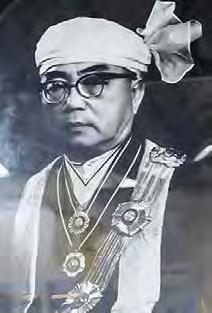
But the relatively weak and poorly equipped Pyu Saw Htee were to be followed by the much more powerful—and far more notorious— Ka Kwe Ye home guards. This group was established in 1963, the year after the military coup that deposed the government elected in 1960. Ka Kwe Ye literally means “defense”

26 TheIrrawaddy FEATURE
Myanmar’s first president, the Shan prince Sao Shwe Thaike.
and the group became part of a new counter-insurgency strategy that the government was about to launch.
Shan State has always been Myanmar’s most troublesome region, partly because of its ethnic diversity— not only Shan but also Kachin, PaO, Palaung, Padaung, Wa, Kokang Chinese and many others live there— but also because of the separate status and rights that it enjoyed before and after independence. During the British colonial period, the 40 or so Shan principalities were collectively a protectorate and not part of Myanmar proper. Each state was ruled by a Shan saopha ( sawbwa in Myanmar) who had his own administration and even his own police force.
The Shan, who call themselves Tai, are closely related to their Thai and Lao neighbors. Contact with the Myanmar kings of the pre-colonial era was limited to paying tribute to the various courts that ruled the western lowlands. But that never amounted to recognition of Myanmar sovereignty over their principalities.
Britain’s interest in the Shan states, as they were called, was limited to keeping the French in Indochina at bay and preventing the emergence of an uncontrollable region between the two colonial empires. Sir Charles Crosthwaite, the British Chief Commissioner in Myanmar in 1887-90, described the situation in this manner:
Looking at the character of the country lying between the Salween and the Mekong, it was certain to be the refuge of all the discontent and outlawry of Burma [Myanmar]. Unless it was ruled by a government not only loyal and friendly to us […] this region could become a base for the operations of every brigand leader or pretender where they might muster their followers and hatch their plots […] To those responsible for the peace in Burma, such a prospect was not pleasant.
Crosthwaite’s words were to become prophetic—in the 1960s. The Shan princes had agreed to join the proposed Union of Burma [Myanmar]

27 TheIrrawaddy
Lo Hsing Han is photographed at a ceremony in Mongla in Shan State in April 1999 to celebrate the 10th anniversary of a ceasefire signed between ethnic armies and the central government.
PHOTO: REUTERS
at a conference in the Shan market town of Panglong in 1947. The agreement that was signed there on Feb. 12 stipulated that the Shan states would retain their autonomy, thus laying the groundwork for the federal system that was introduced after independence in 1948. The Shan princes had also asked for, and been granted, the right to secede from the Union after a ten-year period of independence, should they be dissatisfied with the arrangement. Only the Shan and Karenni (now Kayah) states had this right, which was enshrined in Chapter Ten of the new constitution.
When the ten-year “trial period” was up in 1958, voices were raised for separation from Myanmar. A rebellion broke out that year which attracted radical Shan students in Yangon and elsewhere as well as figures such as Bo Maung, an ethnic Wa former officer in the Union Military Police. In 1959, he led an attack on the garrison town of Tangyan with a force including some Shan students. The civil war was in full swing, and intensified after the 1962 coup, when the federal constitution was abolished and Myanmar’s first president, the Shan prince Sao Shwe Thaike, was arrested and killed in custody. In 1964, his widow, Sao Nang Hearn Kham, became the head
of a coalition of resistance forces that amalgamated to form the Shan State Army (SSA).
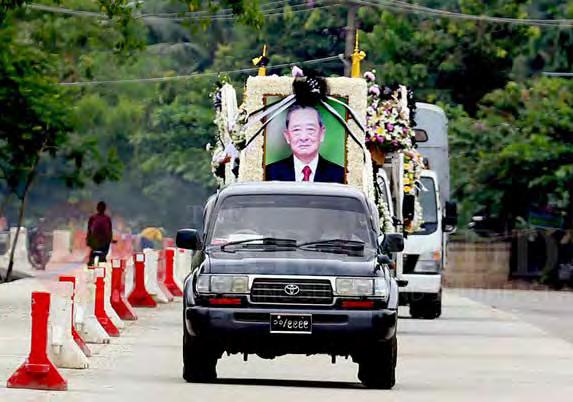
In the 1960s, Crosthwaite’s nightmare vision of chaos in the area was coming true. The main reason was the growth of the Ka Kwe Ye home guard forces. The idea behind the program was to create units to fight insurgents in areas which government forces had difficulty reaching. This became even more important for the government when the Communist Party of Burma, with massive assistance from
China, in the late 1960s and early 1970s took over the remote eastern border mountains, including Kokang and the wild Wa Hills.
The Ka Kwe Ye home guards were encouraged to strengthen their forces, but there were not enough funds in the central coffer to support such a sustained counter-insurgency effort. The answer was to allow them to use all government-controlled towns and roads in Shan State for opium trafficking. In that way, the home guards would become self-sufficient and not dependent on the government for funds.
Many local warlords and brigands accepted the offer and turned their forces into home guard units. The most powerful of them was Lo Hsing Han, an ethnic Chinese from Myanmar who was the commander of a home guard unit made up of men from his native Kokang. Lo Hsing Han’s forces assisted the Myanmar Army during the crucial battle for the Kunlong bridge in December 1971 to January 1972.
The government’s forces were led by a very able commander, Lt.-Col. Tun Yi, a short, rotund and baldheaded man who was nick-named “Napoleon” by his fellow officers. Later in life, he rose to become the chairman of the National Unity Party and passed away in Yangon earlier this year.
In exchange for Lo Hsing Han’s services to the nation, the Myanmar Army even helped protect his opium convoys from ambushes by rival gangs. But the Ka Kwe Ye home guards became too powerful even for Gen. Ne Win and were abolished in 1973. However, rather than surrendering his arms to the government, Lo Hsing Han went underground and formed an alliance with the SSA.
Lo Hsing Han was arrested later that year in northern Thailand, where he had slipped across the border to avoid an attack by the Myanmar Army. He was extradited to Myanmar where he was sentenced to death, not for trading in narcotics—which he had had the unofficial permission to do anyway—but for “rebellion against the state,” a reference to his brief alliance with the SSA.
Lo was, as we know, never executed
28 TheIrrawaddy December 2014
FEATURE
SHAN STATE MYANMAR
A procession of cars drove to the funeral of Lo Hsing Han in Yangon in July 2013.
PHOTO: THE IRRAWADDY
but was released from jail during a general amnesty in 1980. He returned to his old base in Lashio where he set up a new militia force under the Pyi Thu Sit (“people’s militia”) program. He was still a useful tool for the government and later also became a prominent businessman. He passed away in July last year.

Another prominent home guard commander was Zhang Qifu, the halfChinese leader of the local Ka Kwe Ye unit on Loi Maw mountain in northern Shan State. He became an equally powerful warlord. His forces attacked the Shan rebels and, in return, he was allowed to trade in opium and heroin. He was arrested in 1969 after an attempt to reach out to his enemies, the Shan rebels, to negotiate safe passage for his convoys through the areas they controlled.
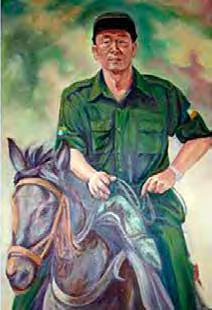
Such an agreement would have defeated the entire purpose of the Ka Kwe Ye program, so Zhang Qifu ended up in jail. He was released in 1974 after his men, who had gone underground
and also linked up with the SSA, kidnapped two Russian doctors from a hospital in Taunggyi. Zhang Qifu then built up a new army, remodeled it into
a Shan resistance force and assumed a new, Shan name: Khun Sa.
His Mong Tai Army (MTA) became one of the strongest and best equipped in Shan State, armed mostly with weapons acquired in Thailand. But the MTA, much to the chagrin of his new Shan followers, never used its weapons against the government’s forces. It seemed this was the old Ka Kwe Ye deal in a new shape and form. Khun Sa eventually surrendered to the government in January 1996, disbanded his army and moved, with his money, to Yangon. He died there in 2007.
Against this background, is it plausible to assume that the emergence of yet another set of militia forces would lead to a situation that would be any different from the past? Hardly, most observers would say, as the recent rapid increase in the production of opium and synthetic drugs such as methamphetamines indicates. Shan State is bound to remain a cockpit of anarchy where drugs, guns and money rule supreme.
29 December 2014 TheIrrawaddy
ADVERTISEMENT
A romanticized image of Khun Sa which was on view in his former headquarters
PHOTO: THE IRRAWADDY
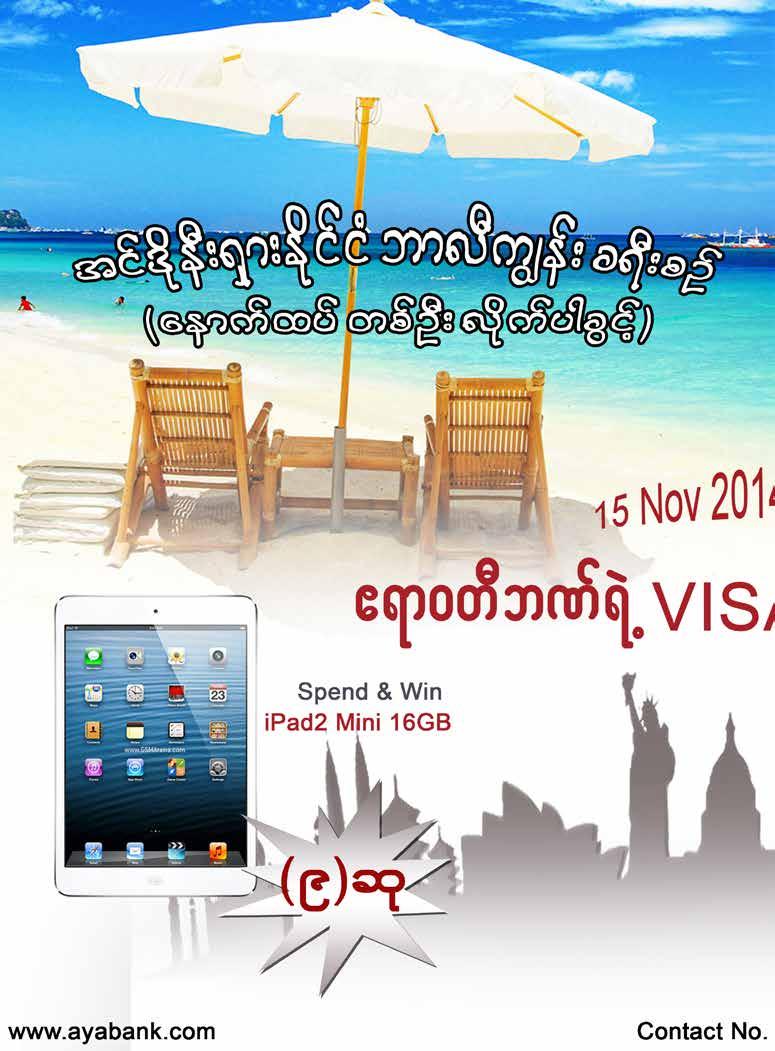

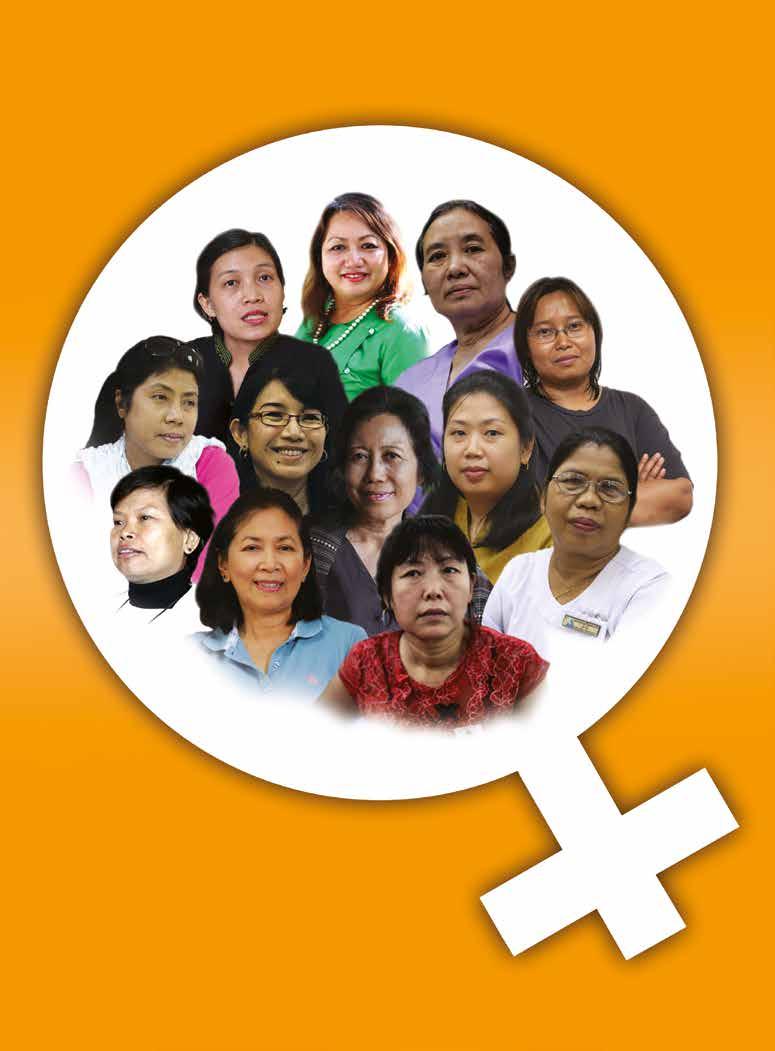
DESIGN: BAGYI LYNN WUNNA 2014 COVER STORY
MOVERS AND SHAKERS
Women have always been at the forefront of efforts to improve society and combat injustice in Myanmar. In the early 20th century when the country was under British rule, women were an important part of the nationalist movement that culminated in the restoration of Myanmar’s independence in 1948.
In recent history, women from all spheres, from students to professionals and housewives have played a huge part in the struggle for democracy, many paying a high cost for their efforts, including spending long periods in jail.
Over the past three years since the nominally-civilian government has opened the country up to an extent, women’s participation in public life has become ever more visible.
From the arts to sports, media, movies, education, labor, and business, to mention only a few areas, women are making a mark and inspiring others to follow in their footsteps.
As lawmakers, media workers, humanitarians and rights defenders, women from every corner of the country are addressing some of the country’s deepest and most difficult challenges.
Some of this work will be acknowledged and discussed at the second Women’s Forum taking place in Yangon and Naypyitaw this month.
Here, as women’s contributions continue to achieve ever increasing recognition, we highlight just a few outstanding individuals whose hard work, courage and vision make them powerful agents of change in the effort to achieve a democratic and prosperous Myanmar.
33 December 2014 TheIrrawaddy
The belief that a decent society should ensure everyone a proper burial inspired Daw Than Myint Aung to co-found the Free Funeral Service Society in 2001.
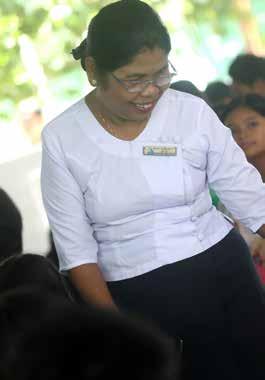
Since then she has helped provide the coffins and dignified burial of thousands of people, and she also began lending a shoulder to bereaved elderly people left behind in dire straits.
Searching for Truth
In October, Ma Thandar was in Bangkok to receive a United Nationssponsored award for her work on democracy and peace when she learned that her journalist husband had been shot dead by the Myanmar Army.
From the Thai capital to the conflict-torn fields of Mon State where Ko Aung Kyaw Naing, better known as Ko Par Gyi, met an untimely death was a distance of just a few hundred miles, but many worlds away.
Ma Thandar’s subsequent dignified calls for justice for her husband spoke to the aspirations of the many in Myanmar long frustrated over the lack of rule of law and the gap between the promise and the delivery of reforms.
Her earlier call for answers after Ko Par Gyi went missing while covering clashes between the Tatmadaw and Kayin fighters had impelled some in the army to make an unprecedented statement to a national newspaper admitting the journalist had been shot in custody.

Now she hopes that out of her loss may come something better. “If justice can be done for my husband, the truth may also be revealed for others who were killed unnoticed like him, and we can prevent this from being repeated. Please help me.” —Kyaw
Phyo Tha
34 TheIrrawaddy December 2014 COVER STORY
PHOTO: JPAING / THE IRRAWADDY
After her husband was killed, Ma Thandar called for justice and the rule of law
Standards
In death everyone deserves dignity, insists Daw Than Myint Aung
Ma Thandar, activist with the Democracy and Peace Women Network, a recipient of the 2014 UNDP-sponsored N-Peace Award which honors women peace-builders in Asia.
Daw Than Myint Aung, philanthropist and writer. Co-fo Villa and the Thukha Yeik Myone orphanage.
PHOTO: JPAING / THE IRRAWADDY
In 2010 she founded the Twilight Villa (See Zar Yeik) home which provides for some 70 elderly people with no other means of support.
The prolific, award-winning writer whose works illuminate the plight of the poor and suffering also co-founded the Thukha Yeik Myone orphanage which cares for over 100 children with HIV.
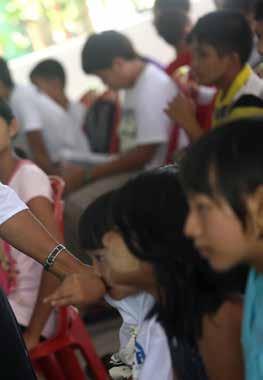
This year she was honored with a Citizen of Burma Award from the USbased organization of the same name.
–Yen Snaing

Business Smarts
Ma Win Win Tint helps modernize Myanmar
If supermarkets and convenience stores are some of the most obvious emblems of 21st century living, Ma Win Win Tint has to be one of Myanmar’s most visible modernizers.
The entrepreneur started the City Mart chain of supermarkets in 1996 and struggled for years to overcome innumerable challenges, including a natural disaster and a bomb blast. She now runs more than 15 large outlets including hypermarkets in Yangon, Mandalay and Naypyitaw.

A new brand of City Express convenience stores has been expanding in Yangon since 2012. The group which employs more than 4,000 people also runs bakeries, pharmacies and baby stores.
This year Ma Win Win Tint was runner-up in the Women Entrepreneur Award of the 2014 ASEAN Business Awards.
“We were recognized at the ASEAN level for our hard work. Now, we’re continuing to try and open new branches as well as to improve our quality and services to give customer satisfaction,” she said. –Zarni Mann
35 December 2014 TheIrrawaddy - Bearer
Ma Win Win Tint, entrepreneur and CEO of City Mart. Runner-Up, ASEAN Business Awards, 2014.
PHOTO: JPAING / THE IRRAWADDY Women's forum, Yangon Saturday, December 6 9.45 am Amazing Women 11.40 am Financial sector and the needy
under of the Free Funeral Services Society, the Twilight
Busting the Glass Ceiling
Ma May Myat Mon Win gives a five-star performance
As the first Myanmar female general manager in the country’s high-end hotel industry, Ma May Myat Mon Win is breaking new ground.
Her appointment to the position of general manager at Yangon’s five-star Chatrium Hotel this year encourages other locals, both men and women, to set their sights on leadership positions in the prestigious sector.
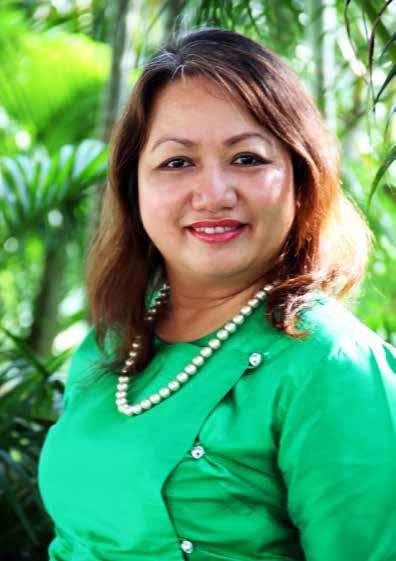
“If others can do it, why can’t we?” asked Ma May Myat Mon Win, who has around 20 years’ experience in sales, marketing and hospitality management.
“We just need the commitment. There are many talented Myanmar people out there ready to take on challenges and responsibilities.”
—Zarni Mann
Women's Forum
Saturday, December 6 14.45 Better city, Better Life 16.15 Community Control and natural resources
Peace -

Violence must end, says Ma May Sabe Phyu
After the government army and the Kachin Independence Army resumed fighting in 2011 and thousands of civilians were among the first to suffer, Ma May Sabe Phyu cofounded the Kachin Peace Network and the Kachin Women’s Peace Network. Her goal—to raise awareness about the troubled north and promote peacebuilding—ran into trouble in 2012 after
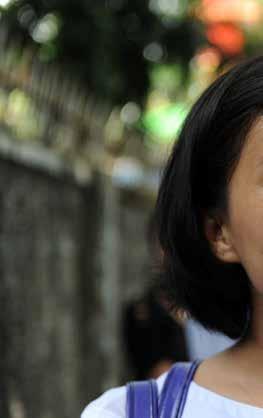
December 2014 COVER STORY
Ma May Sabe Phyu, co-founder of Kachin Peace Netw Gender Equality Network.
Ma May Myat Mon Win, general manager of the Chatrium Hotel.
PHOTO COURTESY CHATRIUM HOTEL
PHOTO: STEVE TICKNER / THE IRRAWADDY
Saving the Sick
Dr. Cynthia Maung stays the course over a quarter-century
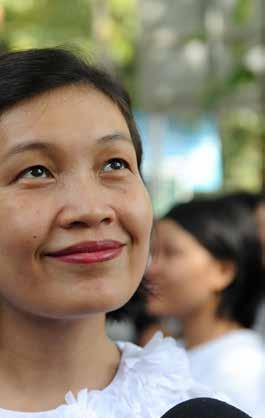
Dr. Cynthia Maung, the physician who is often described as Myanmar’s Mother Teresa, continues her lifesaving work at the Mae Tao clinic she founded in 1988 in the Thai frontier town of Mae Sot.
The clinic provides free treatment to more than 100,000 people every year from the nearby migrant and refugee communities and from all around Myanmar.
Maker
she led a march calling for peace and was charged in six townships under the Peaceful Assembly Law for doing so.
In her other role as director of the Gender Equality Network, the activist has been working on the country’s first legislation to tackle violence against women, due to be completed before the end of the year.
“The peace that I seek is not only about the end of civil wars, but also the end of violence against women. Without this, we can’t say it’s true peace,” she said. —San Yamin Aung
Born to an ethnic Karen family in Moulmein in 1959, Dr. Cynthia studied medicine at the University of Yangon. She left Myanmar after the army conducted a bloody crackdown against democracy advocates in 1988.
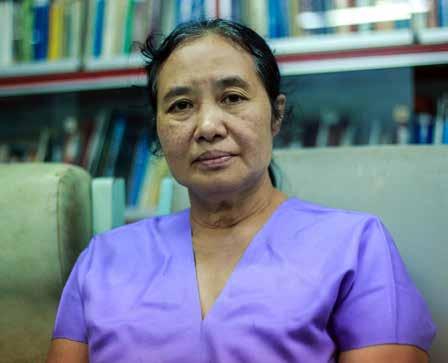
Dr. Cynthia is the winner of numerous awards, including Asia’s prestigious Ramon Magsaysay award in 2002. In December last year, Thailand’s Princess Maha Chakri Sirindhorn presented her with an honorary doctorate in medicine from Ubon Ratchathani University. In 2013, the Sydney Peace Prize Foundation awarded her their annual Sydney Peace Prize.
Though the demand for services is as high as ever, the Mae Tao clinic has been hit since 2012 by donors opting to re-channel monies inside Myanmar instead of to its needy border areas. —Saw Yan Naing
37 December 2014 TheIrrawaddy
PHOTO: JPAING / THE IRRAWADDY
Dr. Cynthia Maung, founder, Mae Tao Clinic, Mae Sot. Winner of the Ramon Magsaysay Award and numerous other awards.
ork and Kachin Women Peace Network. Director of the
The Wr
Daw Aye Aye Win’s way with words
In the early days of her journalism career, Daw Aye Aye Win was harassed on numerous occasions by the authorities.
Once labeled a “stooge of the foreign press” by Myanmar’s state-run media, she was long on the government watchlist as she worked for a foreign news agency, The Associated Press.
Twenty-five years later, she is the only living woman journalist in Myanmar to win four major journalism awards. One award quoted her “life-long dedication to honest and Mi Kun Chan Non, vice chair and director of the Mon Women’s Organization and advisor to the Mon National Education Committee and the Mon Community Based Organizations Network.
Lifting Lives
Mi Kun Chan Non promotes empowerment from the ground up
Myanmar’s borders are home to some of the country’s most neglected populations and women there often experience even more exclusion than marginalized men.
Mi Kun Chan Non has worked for many years to impart Mon women living on the border with Thailand and in other areas with the skills and confidence to take the lead on issues affecting them.
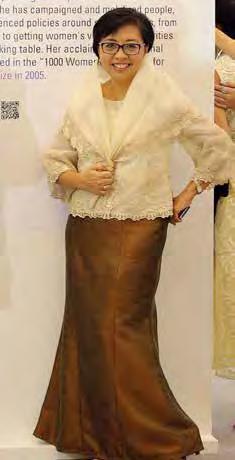
This year the vice chairwoman of the Mon Women’s Organization won a United Nations Development Programme-sponsored N-Peace Award for her long commitment to women’s empowerment.
Mi Kun Chan Non was also one of the few female observers during ceasefire talks between the government and the New Mon State Party in 2012. She continues to call for a far greater role for women in the peace process.
A former teacher and adviser to the Mon National Education Committee, she successfully promoted the teaching of the Mon language in some schools in Mon State, where the government curricula is in the Myanmar language.
“Women’s participation in decision-making is still rather unclear. We believe this is something that must move on,’’ she said. —Nobel Zaw
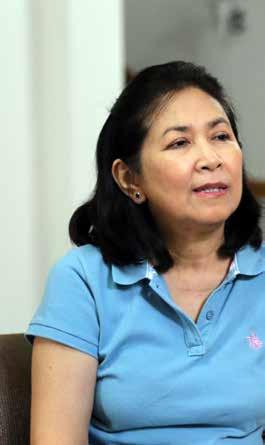
38 TheIrrawaddy December 2014
Daw Aye Aye Win, Associated Press journalist. Winner of
PHOTO: N-PEACE
PHOTO: JPAING / THE IRRAWADDY
Women's Forum 14:45Saturday,December6
Reconcilingtradition14:45andmodernity Whither Women's rights?

courageous journalism, often at the risk of personal safety.”
When she began her journalism career, she was the only female journalist working for an international agency in the country. Some people were scornful of her position, saying she got the job thanks to her father, a former AP correspondent.
“I vowed to myself to prove to them I could be a journalist,” the 60-year-old recalled.
More than two decades later, nobody can deny she has made it. —
Kyaw Phyo Tha
Law-Maker
Daw Nyo Nyo Thin speaks out in regional parliament
The independent lawmaker representing Bahan Township in the Yangon Region parliament is fast becoming a role model for young women aspiring to leadership positions in public life.
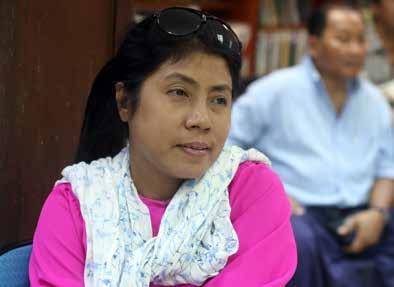
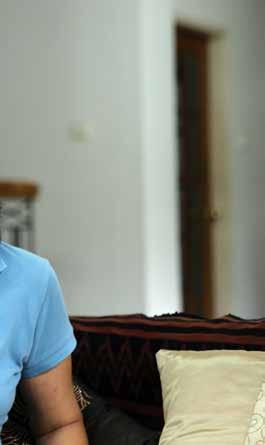
One of just six women among the parliament’s 123 MPs, Daw Nyo Nyo Thin is proving to be an outspoken member on women’s empowerment and development issues. She spoke out against the controversial Yangon City Expansion Project which, in a rare victory, was shelved after a public outcry over corruption claims raised by parliamentarians and the media.
Formerly unknown in public life, Daw Nyo Nyo Thin believes “women are much more qualified than people think.”
She supports a quota system of at least 30 percent female participation in the three branches of government.
In Myanmar, she added, “women are not favored by the [political] system, and their weakness is that they are not interested in taking [leadership] positions but instead are ready to serve others.”
Prior to 2010 she earned a doctorate in law at the Yokohama National University in Japan and pursued postdoctoral studies at the Peace and Governance Program in Tokyo’s United Nations University. —Nyein Nyein
39 December 2014 TheIrrawaddy ite Stuff
four journalism awards.
Daw Nyo Nyo Thin, MP, Yangon Region Parliament.
PHOTO: JPAING / THE IRRAWADDY
Advocating for Rights
Daw Khin Ohmar pushes the primacy of human rights
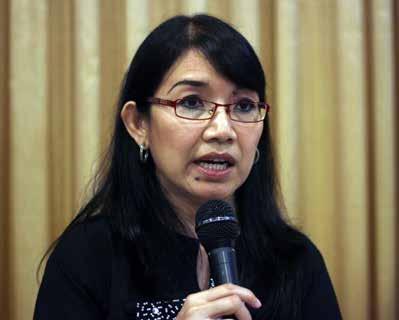
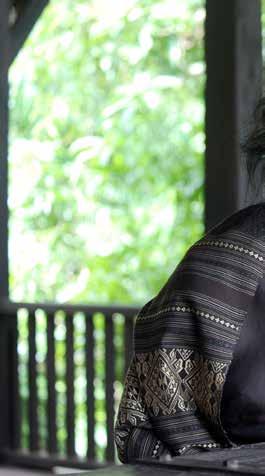
Aleader at the human rights advocacy group Burma Partnership, Daw Khin Ohmar believes that “genuine change in Myanmar will depend on the people” rather than on political figures.
As a veteran of more than two decades working within the movement for democracy and human rights in Myanmar, Khin Ohmar is a wellknown expert and critic on key justice and rights challenges facing the country today.
She also acts in an advisory role to the Women’s League of Burma, an alliance of ethnic women’s organizations based in Thailand.
Though permitted to travel to Myanmar since President U Thein Sein welcomed exiled activists to return she said she still feels “uneasy’’ about working in the country. “The regime is still not able to change their attitude and mindset toward criticism.” —Nyein
Nyein

For Lahpai Seng Raw, change happens at the grass-roots
The ethnic Kachin and leading humanitarian was the winner of the 2013 Ramon Magsaysay prize, Asia’s highest honor in the mold of Europe’s Nobel Prize awards.
As co-founder of the Metta Development Foundation, Myanmar’s largest civil society organization, Lahpai Seng Raw believes strongly in the power of civil society groups to effect social change.
40 TheIrrawaddy December 2014 COVER STORY
Seeing
Lahpai Seng Raw, co-founder of the Metta Development Award.
Daw Khin Ohmar, coordinator at Burma Partnership.
PHOTO: JPAING / THE IRRAWADDY
Women's Forum Saturday, December 6 16:15 Realising the potential of ASEAN's educated women 16:15 Freedom of Expression and the need for transparency
PHOTO: STEVE TICKNER / THE IRRAWADDY
The sixty-five year old widow has dedicated her life to empowering marginalized communities. She has worked in the humanitarian field for almost three decades, providing community development in ethnic areas and support to displaced people in conflict-torn regions.
The former stay-at-home mother turned social worker is today a leading role model for youth and especially for women. Due to what has been described as her “inclusive and selfless” leadership, she has earned wide recognition at home and abroad. —Nyein
Nyein
Freedom to Choose
Ma Zin Mar Aung calls for tolerance, receives the opposite
Ma Zin Mar Aung was only keeping faith with her beliefs concerning tolerance and freedom of choice for women when she spoke out against a controversial proposed law restricting interfaith marriages. But in return, extreme nationalists sent her death threats and hate mail.
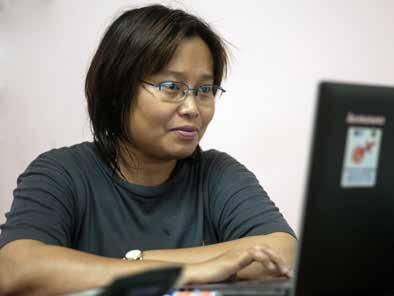
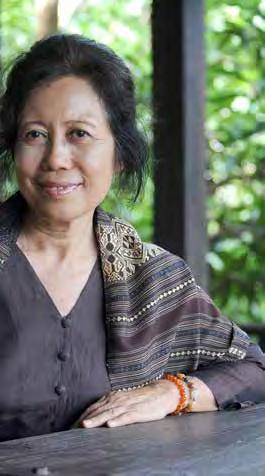
The law, proposed by a group of monks, would require Buddhist women to seek permission from their parents and authorities before marrying a man of another faith, who would be forced to convert to Buddhism.
“The proposal was unacceptable because it was based on extreme nationalism and religious extremism. It interfered with individual freedoms and particularly with the personal choices of women,” she said.
Ma Zin Mar Aung was selected as an International Woman of Courage in 2012 and as one of the Young Global Leaders at the World Economic Forum in 2014.
The former political prisoner is a co-founder of the Yangon School of Political Science and has since founded an organization titled Rainfall to encourage greater women’s participation as the country moves towards democracy. —San Yamin Aung
41 December 2014 TheIrrawaddy Potential
Foundation and winner of the 2013 Ramon Magsaysay
Ma Zin Mar Aung, co-founder of the Yangon School of Political Science and founder of Rainfall, a women’s empowerment organization.
/ THE
PHOTO: SAI ZAW
IRRAWADDY

Business
CRUNCH TIME FOR COPYCATS?
By SAM STUBBLEFIELD / YANGON
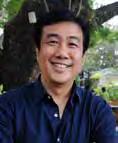
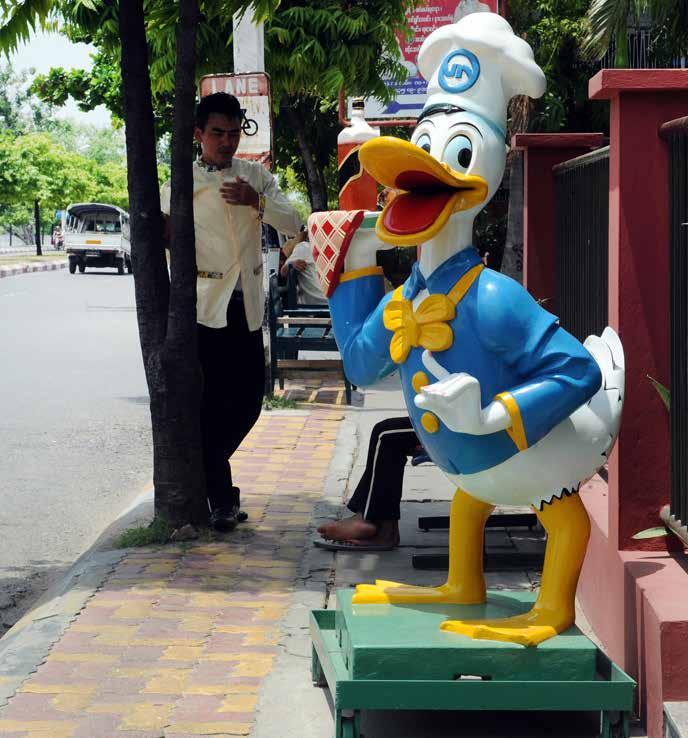
PHOTO: STEVE TICKNER / THE IRRAWADDY
INTELLECTUAL PROPERTY FOOD SIGNPOSTS
High
RESTAURANTS:
rents a challenge for owners
Intellectual property rights may soon become a hot issue
Imagine for a moment a billboard in downtown Yangon that reads “Kandawgyi Fried Chicken… It’s finger lickin’ good!”
Kentucky Fried Chicken will soon enter Yangon’s fast food market, and you can be sure the company will be concerned about preventing any upstart business using words or images similar to its trademarked brand.

But at present, it is not clear what any legal measures might be, as the legal framework covering intellectual property rights (IPR) in Myanmar is virtually nonexistent.
Amid the general excitement over potential new investment opportunities in “Asia’s last frontier market,” there have been increasing calls for the Myanmar government to hasten the establishment of a new IPR protection framework.
The Ministry of Science and Technology has committed to rolling out a comprehensive set of IPR laws by the end of 2014.
Emerging Legal Framework
Myanmar’s current legal framework for intellectual property rights is a

patchwork of colonial-era laws, such as the Myanmar Copyright Act of 1914, and more recent legislation such as the Control of Money Laundering Law of 2002 that mentions IPR only in passing. Other laws that reference IPR include the Penal Code of 1860, the Merchandise Marks Act of 1889 and the Television and Video Law of 1996.
Myanmar’s 2008 Constitution and the Foreign Investment Law of 2012 both contain language guaranteeing the right to ownership of copyrights, trademarks and patents, but the extent of protection and enforcement measures is not clearly defined.
Given the importance of IPR to potential foreign investors, as well as Myanmar’s obligations under the World Trade Organization’s (WTO) Agreement on Trade-Related Aspects of Intellectual Property Rights (TRIPS) and the Association of Southeast Asian Nations (ASEAN) Framework on Intellectual Property Protection, the Myanmar Ministry of Science and Technology is currently developing a new set of laws dealing specifically with IPR protection.
The Ministry has received assistance drafting the laws and enforcement provisions from the World Intellectual Property Organization (WIPO), a selffunding agency of the United Nations which Myanmar joined in 2001.
WIPO regularly provides this type of bilateral IPR technical legal assistance to developing countries as part of the “WIPO Development Agenda” aimed at “working with developing and least developed countries to enable them to reap benefits from the IP system and to enhance their participation in the global innovation economy,” according to its website.
“WIPO has been providing legal advice and extending legislative assistance [to Myanmar] involving four specific laws, namely patent, trademark, industrial design and copyright laws,” a WIPO official told The Irrawaddy by email. The draft laws will be reviewed by parliament in the near future.
Once the new laws come into force, the official added, “WIPO will continue to provide legal and technical assistance to Myanmar in establishing
a modern and effective National IP Office, formulating a National IP Strategy and in building an IP culture in the country.”
Enter International Law Firms
New players are setting up offices in Myanmar to service the IPR sector of the economy. At least five international law firms and consultancies specializing in IPR have opened Yangon offices within the past year or so.
US-based law firm Herzfeld Rubin Meyer & Rose opened its Yangon office in July 2013. According to senior partner Eric Rose, the “major challenges” for IP practice in Myanmar include “non-existent specialized IPprotection facilities and infrastructure and the requirement of new effective IPR laws based on WIPO standards.”
The American Chamber of Commerce, an industry group, opened a Myanmar chapter in October 2013. Judy Benn of the American Chamber of Commerce in Thailand told The Irrawaddy that protecting intellectual property was vital for new companies entering Myanmar. “IP considerations can vary from distinguishing and protecting one’s goods from those of competitors [to] protecting patent, design, trade secrets and valuable research in the information technology arena.”
Ms. Benn added, “We can see significant opportunities to develop IP with the coming of fast food chains, multi-national retail companies and software technology in Myanmar.”
Rouse, a global IP consulting services firm, opened a Yangon office in November 2013 in order to assist companies wanting to file for IPR protection and to commercialize existing IPR ownership in advance of the establishment of the new legal framework.
Fabrice Mattei of Rouse’s Yangon branch listed four major IP challenges for Myanmar at present: “addressing pirated trademarks recorded in Myanmar, [raising] public awareness through educating people to respect other people’s IP rights, setting up an IP Office with well-trained examiners to examine trademarks and other IP
44 TheIrrawaddy December 2014
Local businesses
PHOTO: STEVE TICKNER / THE IRRAWADDY
BUSINESS IINTELLECTUAL
PHOTO: STEVE TICKNER / THE IRRAWADDY
PROPERTY
rights, and establishing a reliable and competent IP judicial system with adequate procedures and well-trained judges.”
Establishing Prior Use Rights
The daily and weekly newspapers in Myanmar are full of adverts staking claims on the use of trademarks within the country—a little-known yet widespread effort by firms to establish their “prior use rights.”
It is understood that the new IPR laws will retroactively recognize trademarks registered in the three years prior to their enactment, so foreign companies have begun efforts to reinforce their ownership claims.
“Currently IP owners can file a recordation for a Declaration of Ownership with the Registry of Deeds & Assurances,” said Ms. Benn, adding that this action did not provide conclusive legal proof of ownership as multiple people can register the same trademark.
Companies that have already filed for trademark ownership with the registration office “will have prior examination rights and approval [ahead of] trademarks filed after the new laws are enacted,” confirmed Daw Tin Ohnmar Tun, President of the ASEAN Intellectual Property Association.
While many international companies have already taken steps to secure their IPR in anticipation of the new legal framework, domestic businesses risk falling behind.
Domestic Impact
There are all sorts of goods and services in Myanmar—from pirated movies to counterfeit Louis Vuitton handbags and copycat fast food restaurants—that would be in violation of international copyright, trademark and patent protections laid-out in the new laws.
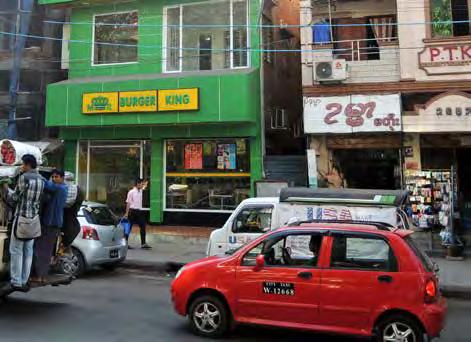
Proponents of strong IPR laws and enforcement mechanisms in Myanmar argue that they will encourage and reward domestic innovation. Mr. Mattei reasoned that “domestic companies will be able to better protect their IP assets”
and more easily “expand the protection of their IPRs in foreign countries,” once the new laws are enacted.
IPR proponents argue that Myanmar needs to change perceptions around intellectual property. The government “will need to educate its people on respect of IPR, with no exceptions,” said Mr. Rose.
Daw Tin Ohnmar Tun highlighted concerns that “most people at grass roots levels are not aware of what constitutes IPR infringements, how trademark registrations are granted, the role of the IPR examiners and how the IPR laws would attract foreign investment within the country.”
As in other countries around the world, the notion that ideas can be held as private property is still not widely accepted or understood in Myanmar.
Governments in developing countries often face a difficult choice between encouraging foreign
investment through strong IPR laws and prioritizing the public good through enabling access to knowledge and knowledge-based products such as educational software and medicines.
For example, people in developing countries may be priced-out of the market for certain medicines that would otherwise be available in the form of alternative generic drugs.
If the new IPR laws are passed by parliament and strictly enforced, domestic enterprises will be the most immediately impacted.
At least in the short term, it is likely that small businesses dealing in goods that violate IPR will need to alter their business models, leaving a large number of people out of a job.
That being said, the widespread availability of counterfeit goods in neighboring countries such as Thailand and China points to the likely path Myanmar will travel regarding IPR enforcement.
45 December 2014 TheIrrawaddy
A local fast food outlet
While many international companies have taken steps to secure their intellectual property rights, domestic businesses risk falling behind.
PHOTO: SAM STUBBLEFIELD
Restaurateurs Face Rent and Tax Woes
Restaurants in Yangon are continuing to adjust as the hospitality industry expands to meet rising demand. Among several challenges facing locally-owned restaurants are sky-high rental prices, commercial tax hikes and the arrival of international chains. Despite the hurdles, Sein Lan So Pyay Garden restaurant—located near Yangon’s famous Inya Lake— continues to do a roaring trade. U Nay Lin, managing director of Sein Lan Ka Bar Co. Ltd. and vice-chairman of the Myanmar Restaurants Association (MRA), spoke with The Irrawaddy’s Kyaw Hsu Mon on the outlook for the local industry.
When did you open Sein Lan So Pyay Garden restaurant?
I opened this restaurant in 2004. At that time, we had only decided to create the garden and we leased the land from the Yangon City Development Committee on a short-term contract. Then, we began selling my sister’s homemade tea leaf salads and fresh fruit juice and coffee. After customers asked us for more variety, we began selling many different kinds of food. In the past, this area [where the restaurant is located] was untouched, but there were some drug users and crime. That’s why former government officials wanted to develop the area and assigned us to design a better garden. Since then we have managed to create a beautiful 3.6 acres garden.
What are the major challenges in managing an outdoor garden restaurant in Myanmar?
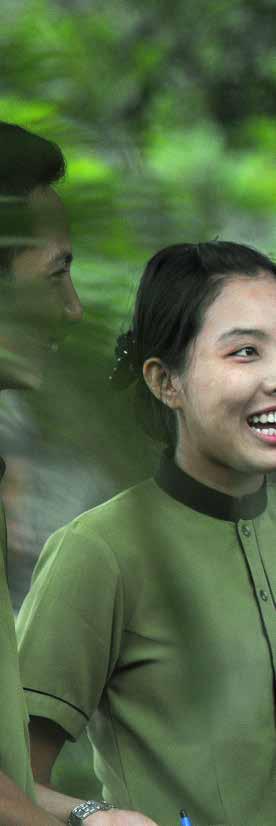
Most of our clients want to sit by Inya Lake, so we need more waiters to serve them. We are always caring for our clients across a wide area. We have 110 staff. To be successful, we have to carefully manage our work. In peak
season, about 3,000 people come here per day. We’re always careful to manage security, food quality and service. We have a big lawn which has overhead cover for 250 people and a small lawn which has cover for 100 people, so clients can hold events here. The rainy season in Myanmar lasts about six months, so we have to rely on the other six months for the bulk of customers.
Why are there relatively few outdoor restaurants?
The main challenge is that the government has not allowed many outdoor restaurants to set up in public areas like this. We need more public spaces for people, but if the government only allows these areas for building condos, or housing projects, it will be hard. As you know, land prices in Yangon are rising. Developers will only focus on building infrastructure, not public spaces. There are only a few public spaces for residents in Yangon to relax in—Kandawgyi Park, People’s Park and my garden. There are public parks in every single ward in other countries. Here, the number of garden restaurants is very small—I can count them—only two or three in Yangon.
46 TheIrrawaddy
BUSINESS INTERVIEW
By KYAW HSU MON / YANGON
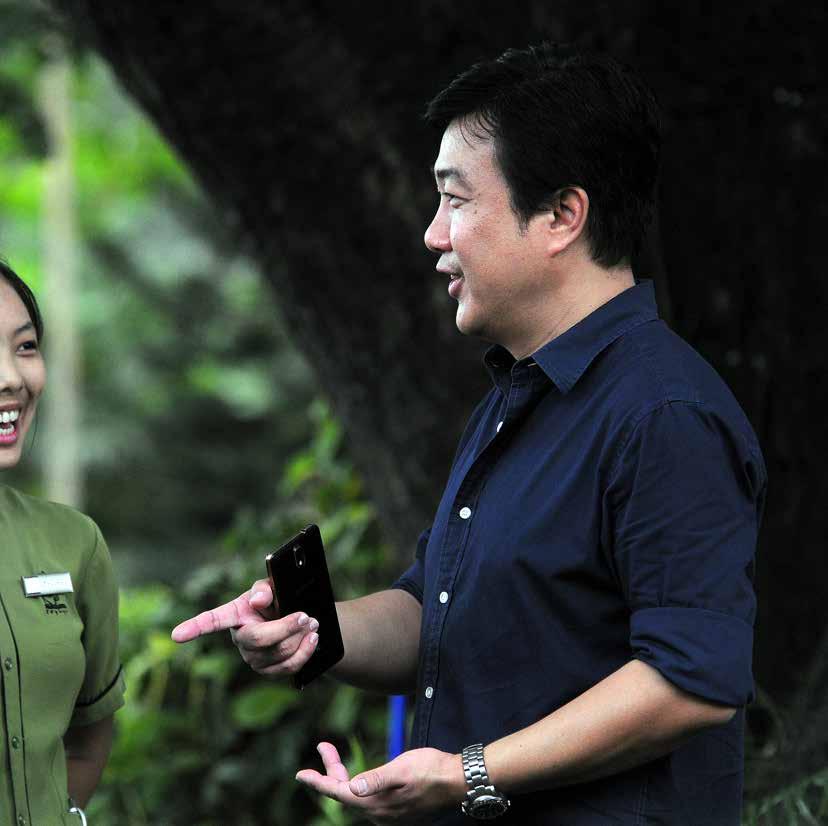
Rising rents, higher taxes and the arrival of foreign competition are challenges for the local restaurant industry, says U Nay Lin of the popular Sein Lan So Pyay Garden eatery near Inya Lake.
U Nay Lin of the Sein Lan So Pyay Garden restaurant has a chat with a member of staff at the popular lakeside venue.
ALL PHOTOS: STEVE TICKNER / THE IRRAWADDY
What is the situation for indoor restaurants in Myanmar? Is business declining?
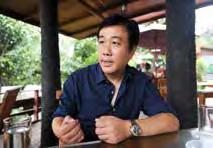

The business model remains strong. But revenue is declining because employees’ wages are getting higher, the price of raw materials is increasing and—the biggest challenge that we’re facing now—rental costs have skyrocketed. Businesses normally rent land on a three-year contract, and we have to construct buildings and create designs during those three years. But it’s hard to get returns on the investment, that’s why earnings are declining. In terms of business development, now we can use new technologies and create new designs, as we are learning from other countries. We can update our businesses and the market is improving. Now, restaurant owners know how to manage their businesses.
What is the impact of international investment in the industry? KFC will enter the market soon and other international food franchises have already opened shops here. Can all of them compete in the future?
It will have little impact on the market because, although when the international chains first step in, consumers will go and try them, in the long-term, people can’t regularly eat fast food. It will impact the local market [but] we have our own customers. We have to maintain [high standards of] food hygiene to compete with them.
The MRA has about 400 members, from Yangon, Mandalay and Bagan, although this is not the total number of restaurants in Myanmar.
Do you have any plans to advocate for food hygiene in Myanmar, since many foreign visitors complain about standards in the country?
We’re considering this issue. Many foreign visitors will continue to visit. MRA is recognized by the government but we’re not an official authority, just volunteers. So we need to work with the government. What we can do is create awareness [of the issue]. We can’t take action and push them.
Do you agree that the government’s support for small and medium enterprises (SMEs) has been weak? What does the government need to do to support SMEs?
We face many challenges just to survive in this industry, for example, high rental costs. In Yangon, the better locations go to car showrooms now. They pay more money, which we can’t afford. Actually, these showrooms should be on the outskirts of the city. We can’t compete with them to pay higher costs.
And the government should create food stalls for clients in every single township. So customers can have whatever they want in one place. The MRA members could run these food stalls.
Another challenge we’re faced with is high commercial tax rates [30 percent of revenue]. We pay 25 percent and 5 percent is effectively paid by consumers. This percentage is a lot for us, and consumers don’t want to pay it either. When we import raw foods for the restaurant, we are charged again, so it is almost a case of double taxation. Ultimately, the consumers will carry this burden, that’s why we’re speaking with the government about the issue. Food prices in Myanmar are among the most expensive in Southeast Asia and prices are always increasing.
Can local entrepreneurs compete with foreign traders after implementation of the ASEAN Free Trade Area in Myanmar next year?
I am worried about that. We local businessmen manage our own budgets, but foreign investors are backed by food chains that have a strong budget. We will definitely lose out, for example, over high rental costs—we can’t pay, but they can. So we will eventually disappear if this occurs [unchecked].
48 TheIrrawaddy December 2014 ADVERTISEMENT
BUSINESS INTERVIEW
U Nay Lin: 'Tax rates are high’

UAB Rides Sanctionslinked Concerns
YANGON — The US blacklisting of senior ruling party member U Aung Thaung caused concerns among clients of United Amara Bank (UAB), which is owned by his son U Nay Aung, and for a time during November an unusually large amount of money was withdrawn from the bank.
The bank’s CEO U Than Win Swe said that after U Aung Thaung’s personal assets were being targeted for sanctions, a rumor began to spread that UAB would also be affected.
U Than Win Swe said clients should not be worried as U Aung Thaung had no relation with the bank, either as a shareholder or as a board of directors member.
The Central Bank said it would not issue a specific statement about the case, but would protect UAB in line with Central Bank rules and regulations.
The Central Bank also confirmed that U Aung Thaung had no involvement with UAB.
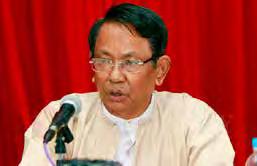
UAB is not on a US sanctions list and neither is U Aung Thaung’s son U Nay Aung, who owns 90 percent of shares in UAB. —Kyaw Hsu Mon
Court Building to Become 5-Star Hotel
YANGON—A Thai bank is lending US$60 million to finance the conversion of one of Yangon’s colonialera buildings into a five-star Kempinski brand hotel.
Siam Commercial Bank has advanced the loan to turn the former Small Claims Court building on Strand Road into a 230-room hotel that will be managed by Germany-based Kempinski AG.
The conversion and refurbishment work will be done by Myanmar’s JL Group and Thai firm Kanok Furniture and Decoration, said a bank statement.
The new hotel is due to open in 2016, the bank said. Other reports have said up to 500 jobs will be created, comprising mainly service staff.
There is a close link between Siam Commercial Bank and Kempinski, since both are majorityowned by Thailand’s Crown Property Bureau, an agency that manages the Thai royal palaces and also administers the country’s biggest property and land portfolio.
A Kempinski-managed hotel has also opened in Naypyitaw. —William Boot
Myanmar Joins China-led Regional Bank
YANGON—The Myanmar government is one of the founding signatories of the new Chinadominated Asian Infrastructure Investment Bank (AIIB), which seeks to challenge the influence of the World Bank and the Asian Development Bank.
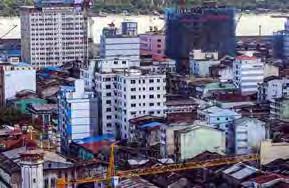
The AIIB’s start-up capital has been set at US$100 billion and half of this will be provided by China.
“Chinese diplomats have been busy promoting [the AIIB] to help build ports, roads, power projects and other desperately needed
infrastructure across the region,” Reuters said.
Myanmar is one of 21 founding members of the AIIB, which includes India. The United States’ government put pressure on Australia, South Korea and Indonesia not to join the founding members.
Among other things, the AIIB is expected to fund controversial coalfueled power plants in the region, something which the Westerndominated financial institutions rarely do for environmental reasons
and pressure from Washington, claimed the energy weekly Asia Power Monitor.
But the loans will “surely come with strings attached, notably the involvement of major Chinese stateowned businesses, such as the China Machinery Engineering Corporation in development contracts,” the Monitor claimed.
“It’s a price which … the ten economies of the Association of Southeast Asian Nations (ASEAN), seem highly likely to accept, given the alternatives.” —William
Boot
50 TheIrrawaddy December 2014
BUSINESS SIGNPOSTS
PHOTO: THE IRRAWADDY
Downtown Yangon is set to get another five-star hotel.
UAB insisted that senior USDP member U Aung Thaung had no relation with the bank.
PHOTO: THE IRRAWADDY
Mandalay Airport Operator Named
YANGON — Japan’s Mitsubishi Corp and Jalux Inc will partner with Myanmar’s Yoma Strategic Holdings Ltd to operate Mandalay airport, the country’s second-largest airport, and expand it into a regional hub, an official from the Department of Civil Aviation (DCA) said.
“The airport in the future will be booming,” said DCA official Than Min. “It will be a center for international flights.”
The companies established a special purpose company, MC-Jalux Airport Services Co, to run Mandalay airport for 30 years, trading house Mitsubishi said in a statement.

Myanmar is also planning to privatize operations at smaller domestic airports and is currently accepting applications, said Than Min. Only local companies have so far applied.
The Mandalay airport partnership will “generate further expansion of domestic and international flights” beginning around March next year, Mitsubishi said.
Mandalay airport currently has capacity to handle three million passengers a year, but only serviced 750,000 in 2013, it said.–Reuters
Deals Inked With China
BEIJING — China and Myanmar signed deals worth US$7.8 billion for energy, agriculture, telecommunications, infrastructure and finance during Chinese Premier Li Keqiang’s visit to the Southeast Asian country for the East Asia Summit, Chinese state media reported in November.
The deals include an agreement to build natural gas power plants, as well as $300 million in small-scale loans for agriculture, said the official China Daily newspaper.
China and Myanmar also agreed to set up an electricity cooperation committee, with the aim of keeping energy projects on track. In 2011, President U Thein Sein suspended the $3.6 billion, Chinese-led Myitsone dam project, some 90 percent of
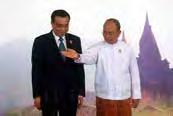
whose power would have gone to China.
China and Myanmar have traditionally had close ties, with Myanmar relying on its powerful northern neighbor for economic and diplomatic support when it was under wide-reaching Western sanctions.
Since taking power in March 2011, Myanmar’s reformist government has sought to decrease its dependence on China. —Reuters
51 December 2014 TheIrrawaddy ADVERTISEMENT PHOTO: JPAING / THE IRRAWADDY
China's Premier Li Keqiang with President U Thein Sein in Naypyitaw
China Shows a Softer Side
Beijing moves to placate rivals but root causes of tension remain
By BEN BLANCHARD / BEIJING
From a military rules-ofthe-road agreement with Washington to US$20 billion in loans for Southeast Asia, Beijing has set aside the tensions of recent years to present a softer side to the world last month.
But proof of whether President Xi Jinping is serious about narrowing differences that have marked his first two years in office will depend on how China’s festering disputes are managed in the months ahead.
The possibilities for disagreement are many, from cyberspying to land reclamation in the disputed South China Sea and the deeply emotional issue for China of how Japan deals with next year’s 70th anniversary of the end of World War II.
China set nerves on edge with its air defense zone over the East China Sea, by sending an oil rig deep into waters disputed with Vietnam and by unveiling advanced new weapons, including a prototype stealth fighter.
But China has recently gone out of its way to set minds at ease as President Xi hosted the Asia Pacific Economic Cooperation (APEC) summit.
China made conciliatory gestures to Vietnam, the Philippines and Japan, and, with US President Barack Obama, agreed to a climate deal and to lower the risk of misunderstandings during military encounters.
“We still have to observe what happens in the next six to 12 months
or even longer. But I think that now we stand at the beginning of a substantive change in Chinese foreign policy,” said Shi Yinhong, head of the Centre for American Studies at Beijing’s Renmin University who has also advised the government on diplomatic issues.
Reliance on the military has been replaced by money to guide China’s diplomacy, Shi Yinhong added, pointing to the $40 billion New Silk Road fund and the $50 billion China-backed Asian Infrastructure Investment Bank announced before APEC.
More than $120 billion has been promised since May to Africa, Southeast Asia and Central Asia.
“The message is that China sincerely hopes that it can play its role as a responsible power,” the official China Daily newspaper wrote in an editorial on Nov. 17.
Root Causes Remain
The root causes of past disagreements have, for now, been set aside.
State-run Xinhua news agency sought to temper expectations following President Xi’s meeting with Mr. Obama on Nov. 11-12, saying that, despite the “amicable tone,” “still much has to be done to translate promises into reality.”
As if to remind the United States of China’s growing military power, the day before President Xi Jinping and Mr. Obama’s summit, the Chinese military unveiled a sophisticated new stealth
fighter jet at an air show in the south of the country.
“A lot of problems exist and there will be a lot of uncertainty in the days to come,” said Jia Qingguo, dean of the School of International Studies at Peking University who has also advised the government on diplomacy.
China has long sought to address fears in the region, and globally, that economic growth will inevitably bring a more muscular diplomatic and military approach.
During a summit of Southeast Asia leaders in Myanmar last month, Chinese Premier Li Keqiang proposed a friendship treaty, yet held to the line that Beijing will only settle South China Sea disputes directly with other claimants.
Philippine President Benigno Aquino said he and President Xi Jinping had a good meeting in Beijing, but the Philippine military says there
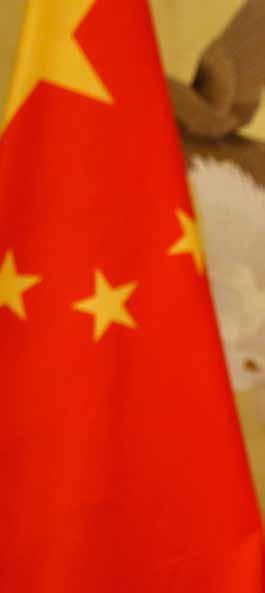
52 TheIrrawaddy December 2014
REGIONAL
has been no sign of China reducing its presence in parts of the South China Sea that Manila also claims.
Legacy of War Lives on
Then there is Japan. China and Japan, the world’s second—and third—largest economies, have argued bitterly for two years over disputed islands, regional influence and the legacy of Japan’s wartime occupation of China.
While President Xi and Japanese Prime Minister Shinzo Abe held breakthrough talks just before APEC, in recognition of the economic damage inflicted by their row, suspicion runs deep.
“Whether or not incidents or disturbances can be prevented from happening again between the two countries depends on Japan’s attitude and actions,” Han Zhiqiang, acting Chinese ambassador to Japan, was quoted saying in state media last month.
China has already promised highprofile events to mark next year’s World War II anniversary, offering another opportunity to accuse Japan of not properly atoning for its past.
“Japan is particularly worried about how the anniversary will be handled in China,” said one Beijing-based Western envoy.
India presents another problem, with no sign of lasting resolution to a festering border dispute.
In recognition of the world’s concerns, President Xi, speaking to Australia’s parliament on Nov. 17, channeled an ancient expression to assuage worries: “A war-mongering state will eventually die no matter how big it is.”
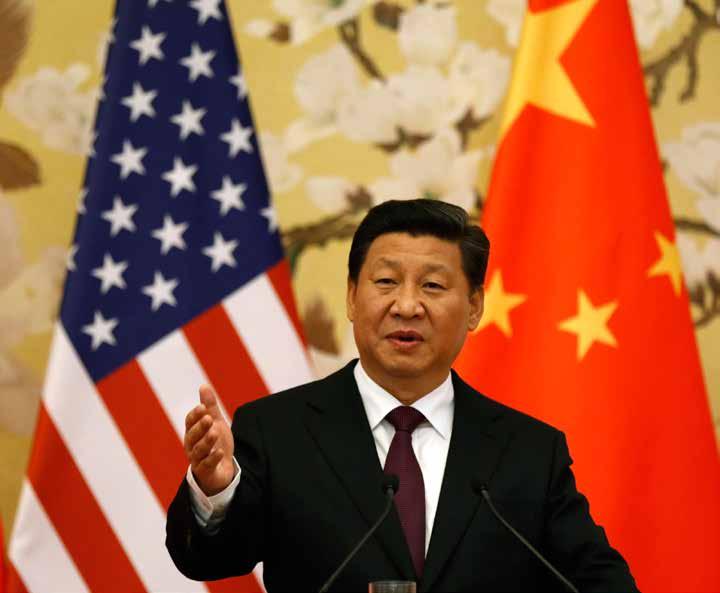
He did not finish the saying, whose last line reads: “Though the world is peaceful, you will be in danger if you forget about preparing for war.”
Reuters
53 December 2014 TheIrrawaddy
Chinese President Xi Jinping speaks during a news conference with US President Barack Obama (not pictured) in the Great Hall of the People in Beijing on Nov. 12.
“A war-mongering state will eventually die no matter how big it is.''
–Chinese President Xi Jinping
PHOTO: REUTERS
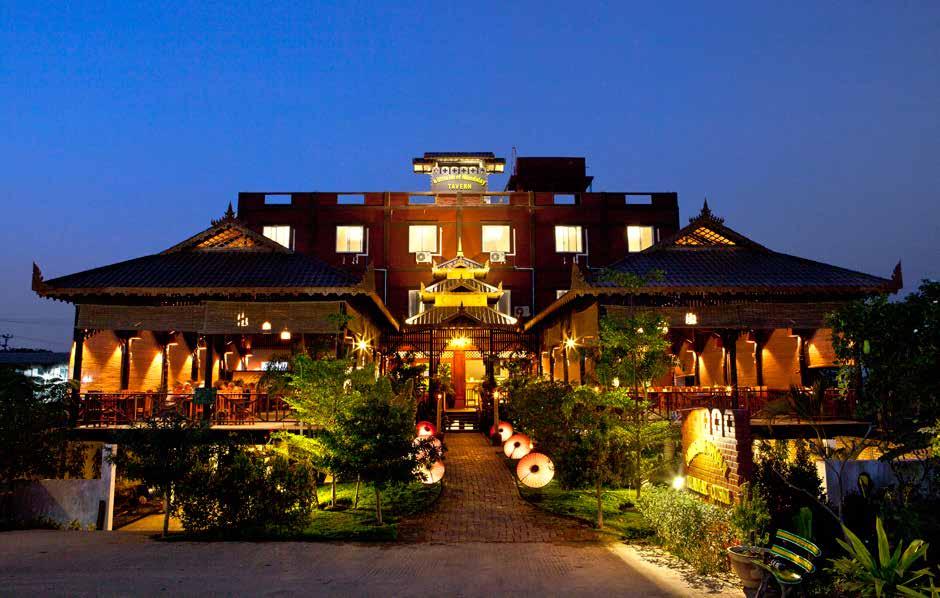




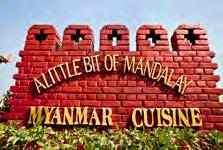


December 2014 No. 1-A / 3, 28th Street, Between 52nd x 53rd Streets, Mandalay. (One block away from Rupar Mandalar Resort) Tel: 09-910 48506, 09-500 2151 www.littlemandalay.com E-mail: littlemandalay@gmail.com ...truly Mandalay ...simply quaint... 2014 Winner
‘A little bit of Mandalay’ Tavern + Restaurant Try the taste that makes “A little bit of Mandalay” the right choice in Mandalay. • Restaurant since 2002 • Tavern with 24 Twin Rooms • Restaurant capacity 180 Pax • Myanmar and Chinese Cuisines • Home-cooked curries & more • Packed Lunch Boxes available for Cruises & late flights.
of ‘Certificate of Excellence’ by TripAdvisor
Loikaw's quiet allure

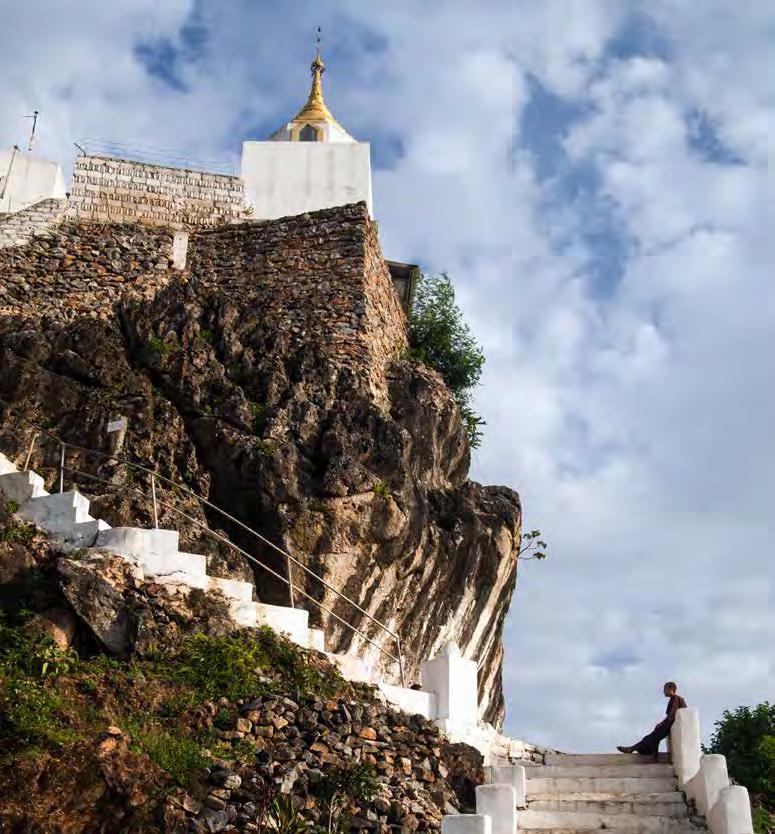

From
By CHRISTOPHER IAN SMITH / LOIKAW, KAYAH STATE
Lifestyle TRAVEL SOCIAL ENTERPRISE FOOD BOOKS Restaurant: The Phayre's offers comfort at the right price ALL PHOTOS: CHRISTOPHER IAN SMITH
majestic mountaintop pagodas to a mysterious cave and a volcanic lake, the Kayah State capital is an enchanting destination
Cabbages spilled over the back of my bus seat, but I was too busy watching the scenery to care.
The sights I passed on the road into Loikaw, the capital of Kayah State, included gorgeous views of rice paddies and teak fields, then Christian churches, military bases, mountaintop pagodas and the lovely Moebye Lake, twice the size of the more famous Inle Lake to the north.
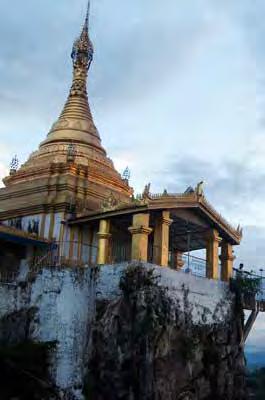
It quickly became obvious why some effort had gone into removing the need for permits to visit Loikaw. Travelers are going to go nuts for this place. From friends who had previously visited here, I had heard that this newly-opened region offered waterfalls, caves, volcanic lakes, mountaintop pagodas and homevisits to a vast array of ethnic groups, including the Padaung, the group whose female members famously often wear rings around their necks.
Kayah State—Myanmar’s smallest—has largely been off-limits to foreigners due to long-running conflict between the Myanmar Army
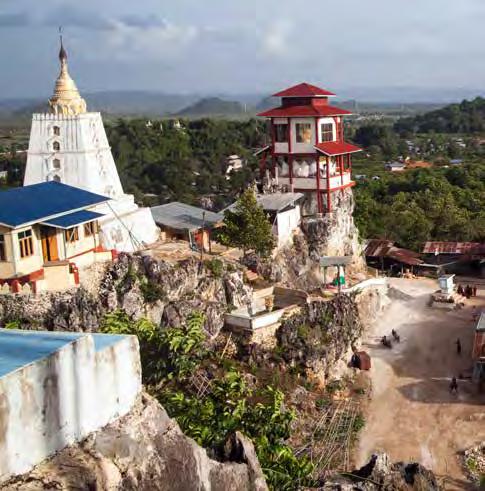
and local ethnic armed groups. The state’s largest ethnic armed group, the Karenni National Progressive Party, signed a ceasefire deal with the government in March 2012. However, the legacy of conflict lingers on. According to the United Nations High Commissioner for Refugees, reports indicate that all seven townships in Kayah State have been contaminated by landmines.
I arrived by local bus from Kalaw in Shan State; quite the experience, but I admit, not the most efficient choice of transport. As you come into Loikaw, you are immediately struck by the majestic mountaintop Taung Kwe Pagoda which dominates the town to impressive effect. Loikaw had a similar feel to Hpa-an, the capital of Kayin State, but with a better-looking infrastructure.
I asked to be dropped off at the first guesthouse I saw, but an employee told me that it did not have a license to accept foreigners. It turned out that there were about a half-dozen foreigner-friendly guesthouses in Loikaw but they were
each located far from one another and most were already booked out by locals.
After a healthy cover of sweat thanks to the detailed but not-to-scale map of Loikaw available at every guesthouse, I managed to find a room and was pleasantly surprised at the high quality (relative to Yangon). My bathroom was clean with hot water and a bathtub. There was airconditioning and the price included breakfast.
Asking around, I discovered that there were no motorbikes or bicycles for rent in the city, just guides for hire at US$25-35 per day. Luckily, as I pondered my options over a beer at a lakeside beer station, a local university student with a mohawk and a motorbike joined me and offered to show me around. He rattled off a list of the sights that I should see: “You have to visit the mountain pagodas, Kyet Cave, Umbrella Lake, and we can visit the market tomorrow where the Padaung sell their rice-wine.” Foreign visitors are still a novelty here.
December 2014
LIFESTYLE | DESTINATIONS
Wide open spaces dotted with charming architecture add to Loikaw's appeal.
Local temple
For me, the chain of hilltop pagodas was the most exciting novelty. First, we headed up to the famous Taung Kwe Pagoda. If it’s not the sight of the pagoda, it’s the sight from the pagoda that can leave you a bit breathless. It’s the crown jewel of a chain of pagodas that includes Myaka Lup Pagoda, Shwe Let War Pagoda and Nagayon Pagoda. Each one offers its own elegance and experience, but the incredible views of the city, valley and Shan mountain range are what make them spectacular.
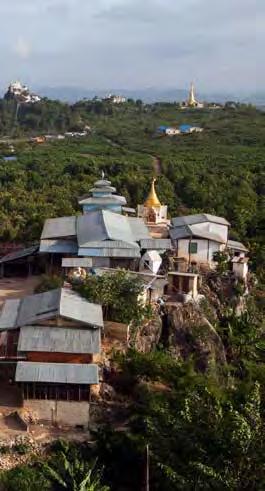
The next day, the not-to-scale map disappointed again when it became obvious that Kyet Cave was not a couple of blocks away from the airport, but a very long drive from the town. The journey, though, was charming; through beautiful teak and rice fields, as well as ancient ceremonial grounds where “spirit poles” called Kayhto Bo, still used annually for animistic ceremonies, stick up 15 feet into the air.
Kyet Cave, also known as “Yarsu Ku,” is watched over by an old monk

BRIEF INFO
Getting there:
I traveled by slow local bus from Kalaw on a 12-hour journey for US$12. More comfortable air conditioned buses depart from Yangon and Mandalay and take 16-18 hours for about $12-18. The train, cheaper than the bus and rumored to have great views, takes nearly 24 hours from Naypyitaw. Myanmar Airways has several flights a week from Yangon to Loikaw that cost around $73. But be warned that these flights can often be canceled up to 24 hours ahead of time due to low occupancy.
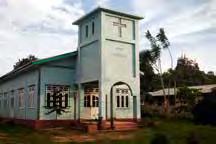
with arguably the happiest face in existence. He was very willing to light up the cave if you brought him a jug of petrol for the generator. Inside, I saw the cave’s mysterious coffins sprinkled around in various states of condition. There are many different stories and theories, though no general consensus, on why they are there. The happy monk just shrugged and said he didn’t know where they came from.
Another long drive away from the town is Htee-pwint-kan, also known as Umbrella Lake, which is actually a small volcanic pond. The pressure from below intermittently lifts parts of the soil above the surface of the water, creating the “umbrella” effect that gives the lake its nickname. The span of time for this event can stretch out over a couple of days and whether you see it or not depends solely on luck. According to local lore, seeing seven of these “umbrellas” at once is considered an extremely lucky sign and your best chance is during a full moon.
Staying there:
The cheapest places to stay start at $25 per night and include the Nan Ayar Inn, the Loikaw Princess Guesthouse and Min Ma Haw. They are clean and rooms are well equipped with furnishings and air-conditioning and come with a standard simple breakfast of toast and eggs. Bathrooms are clean with hot water, mirrors and western toilets. The city’s only “high-end” hotel, Hotel Loikaw (http://www.hotelloikaw.com), sits on the edge of the lake, overlooking the golf course and goes for $60-80 per night.
My mohawk-sporting informal guide told me that the Padaung village could be visited only with a permit and an official guide but that the villagers commonly visited local markets to sell their wares. Here, if you avoid any style of behavior that could be construed as gawking, you may be lucky enough to sit and have a cup of sweet fermented rice wine with them.
Before ending my trip, I scaled the steps of Taung Kwe Pagoda one more time to watch the sunset. At this time of day, the railings become dotted with locals and visitors with the same idea—to watch the valley turn golden, across the rooftops of churches and mosques, and all the way across the fields to the Shan mountain range.
Visitors should note that permits and official guides are still required in order to visit areas outside of Loikaw. Kayah State, full of natural resources and local ethnic groups, needs a secure peace before it will become truly open. For now, with that proviso, Loikaw is still a lovely place to visit.
57 December 2014 TheIrrawaddy
Kyet Cave
A local church, with the Taung Kwe pagoda in the distance
Get on your Bamboo Bike
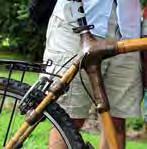

An American couple plan a project which aims to harness local skills and knowledge to build bamboo bikes in Myitkyina
 By MARK INKEY / YANGON
By MARK INKEY / YANGON
Ayoung American couple have heeded Daw Aung San Suu Kyi’s calls for ethical investment in Myanmar with their plans to set up a community-led company building ecologically sound bamboo bicycle frames in Myitkyina, the capital of Kachin State.
Jeff and Kristen Parker, volunteers who originally went to Myitkyina to
teach English, want to train locals to build bamboo bicycle frames and help give them the necessary leadership skills to be able to run the company and train others in the future.
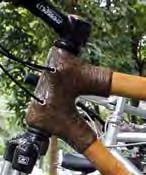
The couple researched the feasibility of the idea and devised a plan to sell made-to-measure bamboo frames abroad for US$1,000 each, a competitive price for a bespoke frame. They calculated that they would need to sell 35 frames a year to make the operation self-sustaining.
Each $1,000 frame sold pays to employ one person for 38 days; build one more frame for export; and build three complete bamboo framed bicycles for sale to locals at an affordable price. These will be assembled with cheap locally available parts, mainly acquired from rickshaws.
Mrs. Parker said that building subsidized bicycles would generate local job opportunities, improve workers’ frame building skills, and provide cheap bicycles far better in quality than those available at present.
“Eventually we would love to have some sort of cycling team,” said Mr. Parker. “There are cycling competitions in Southeast Asia and it would be a cool way to get the Kachin building international connections and getting to know people outside their own community.”
The couple are predominately selffunding the project but are also using
58 TheIrrawaddy December 2014
LIFESTYLE | SOCIAL BUSINESS
Left: Jeff and Kristen Parker with the bamboo frame bicycle they built with the help of Brown Bike in Chiang Mai, Thailand.
Below, frame tubes are made mainly of bamboo and joined with hemp fiber and epoxy.
the fundraising website Kickstarter to raise project capital.
The first 29 frames ordered through the website will be sold at discounted prices ranging from $300 to $900 depending on how early the order is. Those who obtain the first 20 cheap frames will be asked to provide feedback once a month for one year to help the company tweak the design.
The money from the first 20 sales will help fund the full training of five frame builders, including designing the bespoke frames with AutoCAD software and using Mr. Parker’s custom-built jig to assemble them. It will take one month to fully train each worker.
The Parkers already have premises in Myitkyina and have been talking to people there about their plans. They plan to pay a locally competitive wage and will also try to employ people representative of the ethnic mix in Myitkyina.
The locals will bring their unique skills and expertise to the project.
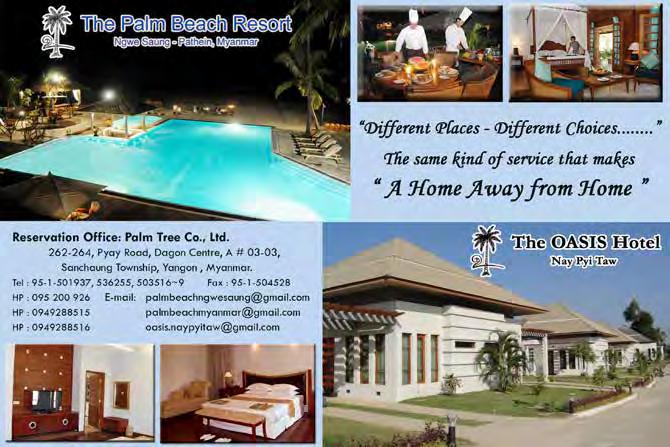
“It’s not about Jeff and Kristen being in charge of this. We’re only here as a vehicle for sharing the knowledge,” said Mr. Parker. Without local knowledge about bamboo, Mr. Parker said, “I don’t think it would be worth it. This project would not get anywhere without local knowledge.”
The couple’s plans are admirable, but they will only work if bamboo makes good quality bicycle frames. On this point, Mrs. Parker had little doubt. “Bamboo is extremely resilient,” she said. “It is stronger than carbon fiber and absorbs road vibrations way more than other materials.”
To be suitable for frames, bamboo must be between two and three years old (locals can tell the age of bamboo just by looking at it) and picked, when it is green, in the dry season. It is then left to dry in the sun for three weeks before being dried with a blowtorch. This turns the bamboo brown and caramelizes the sugar resin around the fibers, turning it into a solid similar to
epoxy, which effectively petrifies the bamboo.
The frame tubes are then held together with natural joints of hemp twine covered in epoxy and the whole frame is then sealed with lacquer and sanded by hand until a shiny finish is achieved.
After the Parkers built their first bamboo frame, they refined their technique with further study in Chiang Mai, Thailand, under the instruction of Oat, a Thai bamboo frame maker who has been making his Brown Bike brand of bamboo frames for several years.
Now that the Parkers have all the necessary knowledge and tools to start producing bamboo frames in Myitkyina, they just need the first orders to filter in.
To order one of the first discounted bamboo frames, make a donation or obtain further information about the project, visit Jeff and Kristen Parker’s Kickstarter page at Burma Bike Partnership.
59 December 2014 TheIrrawaddy ADVERTISEMENT
ALL PHOTOS: MARK INKEY
Price is Right at “The Phayre’s”
A new restaurant offers a welcome reprieve from the often over-priced fare on offer in Yangon
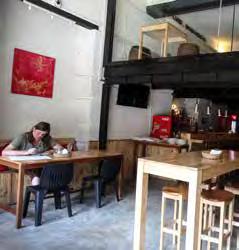
 By SIMON ROUGHNEEN / YANGON
By SIMON ROUGHNEEN / YANGON
In Yangon, where a plate of Lok Lak about half as good as you’d get in Phnom Penh costs US$10, a handful of veneered restaurants and bars slap on an extra couple of thousand kyat, every few months, for diminishing portions of an exponentially-depreciating quality of fare.
Refusing to join the race to the bottom is The Phayre’s, a new restaurant with nighthawk aspirations next door to the famous Pansodan Gallery.
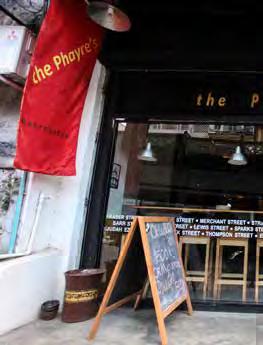
Wings and chips might not be Michelin star material, but at 4,000 kyat there’s not much of an argument to be made with a pyramid of sizzling chicken doused in Korean-style sauce—enough to make it hard to spot the half-buried clump of paprika and cajun dusted fries that peek out from beneath the pile.
“In Myanmar most of the restaurant[s] say their food is good, but sometimes it’s not, and usually [it’s] so expensive,” said Ko Htoo Kyaw. He is one of three young Myanmar who returned home from the United States and teamed up
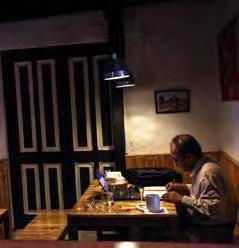
to found The Phayre’s, so-named as Pansodan Street was previously called Phayre Street, after Arthur Purves Phayre, the first British Commissioner of colonial-era Myanmar.
The pun on ‘fare,’ which has already caught on around Yangon, was inadvertent, conceded Ko Htoo Kyaw. Fair play to him for admitting that.
The sandwiches—again a 4,000 kyat outlay—are hefty enough to warrant a snake-like jaw-unhinging, though the 3,000 kyat beef salad is a bit light, even as salads go. A bit of ballast—some of that thick sandwich bread perhaps—wouldn’t go amiss. But the oil-drizzled foliage does come with some tender, drool-inducing strips of meat that should awaken the senses of even the most ardent veggie.
A Phayre warning should be given to coffee addicts: if you are looking for a lunchtime jolt of java, you might
60 TheIrrawaddy December 2014 LIFESTYLE | RESTAURANT REVIEW
ALL PHOTOS: JPAING / THE IRRAWADDY
want to keep walking. At the time of writing, The Phayre’s served only brewed coffee, with no shiny Italian espresso machine behind the bar just yet.
That will soon change, however, according to Ko Myint Thein Oo, another of the three co-founders, who said they were hoping to install a
coffee machine in the coming weeks.
Ko Htoo Kyaw and Ko Myint Thein Oo both came home recently after years working in the United States, cutting their business teeth with big names like Macy’s and Gap.
Why come back to start a business in a city where office space is rarer than sparrows on Jupiter and where land prices are so high that units should be offered in cm²?
“Just the business opportunities here,” said Ko Htoo Kyaw, suggesting that for those in the know, Yangon is the place to be. Only three months after opening, the idea is to open more branches elsewhere in town. But there’s no schedule for this yet, alas.
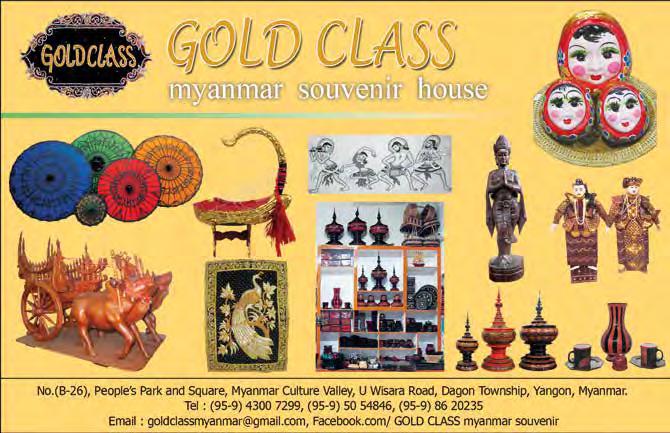
On the Friday night when The Irrawaddy visited, there were just a half-dozen drinkers in The Phayre’s, suggesting that for now the place is more of a daytime eating spot.
“We get the lunch crowd from some offices, [including] from Sakura Tower,” said Ko Myint Thein
Oo. There’s also a weekly spillover of beard-stroking expats from the Tuesday night Pansodan Gallery gatherings.
The team behind The Phayre’s renovated the former Chinese restaurant’s interior with austerelooking timber—similar to the look of Fatman’s about a half mile away on Yaw Min Gyi St.
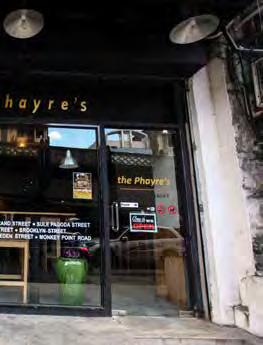
There should be movie nights soon—downstairs a whitewashed wall serves as a big screen for a projector parked across the room. Upstairs there are some couches you can sink into while sinking a few Myanmar draft or maybe a signature Pegu Cocktail.
The split levels and glass facade help keep the place well-lit. But if you’re waiting for your friends upstairs, don’t go yelling through the glass if you spot them shuffling in through the front door. The upstairs area is sound-proofed—making The Phayre’s a handy venue for a private party or a work gathering.
61 December 2014 TheIrrawaddy ADVERTISEMENT
Lessons from Cambodia?
Sebastian Strangio pulls back the curtain on the decades-long reign of Cambodian Prime Minister Hun Sen
By DAVID HOPKINS
When Mr. Hun Sen became prime minister in 1985, Cambodia was under Vietnamese occupation, internationally ostracized and gripped by an ongoing Khmer Rouge-led guerilla war. Almost three decades later, the 62-yearold strongman remains in power and a measure of stability has been achieved under his Cambodian People’s Party (CPP).
But despite the ruling party’s oftstated claims to have defended—to paraphrase Hun Sen—peace, order and sovereignty, dissatisfaction with the status quo is rising. In mid-2013, the CPP won a narrow victory in national elections, its worst electoral performance in 15 years.
What lies behind this veneer of peace and political stability? In “Hun Sen’s Cambodia,” Phnom Penh-based journalist Sebastian Strangio offers an unflinching assessment.
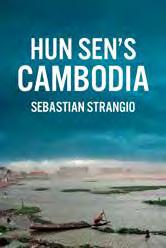
Tracing Cambodia’s
precarious emergence from the disastrous reign of the Khmer Rouge (1975-79), Strangio methodically dismantles the “mirage” of democracy and development assiduously constructed by the CPP and its backers. The country he depicts is ensnared by patronage politics, pervasive corruption and appalling, impunity-fueled violence.
Strangio is highly critical of international interventions—from the UN peace-keeping force (199293) that failed to demobilize the various fighting factions to the ongoing trials of former Khmer Rouge leaders that have been plagued by dysfunction and interference. He also takes aim at the empty apolitical development jargon of many local and international NGOs and their inclination to focus on shortterm results.
Cambodia today, argues Strangio, is trapped in a “development complex.” Continued lack of state capacity is matched by ongoing disbursals of international aid, enabling the government to
continue “ignoring its most basic responsibilities.”
He coins the term “Hunsenomics” to describe the system of patronage, graft and shameless nepotism that enriches a small circle of elites and their families and leaves systemic poverty to fester. At the center of this destructive but enduring social and political order, Mr. Hun Sen rules on

62 TheIrrawaddy December 2014 LIFESTYLE | BOOKS
a diet of force and fear-mongering, intimidation and bribery.
Strangio paints a perceptive portrait of the former Khmer Rouge cadre as the quintessential political animal; as comfortable wooing international aid donors as he is publically threatening opponents. Any individual or institution that may rival his impervious influence is
ruthlessly brought to heel.
Mr. Hun Sen’s self-regard manifests itself in the thousands of schools that bear his name and the countless CPP billboards across the country that feature him waving benevolently, as Strangio recounts, in “Dear Leader” mode. After refusing to pass a law in 2002 on regulating the royal succession, the prime minister
asserted: “I have no right to be the king. But I have the right to create a king.”
The book introduces a raft of other powerful figures. Tycoons such as Teng Bunma, who once shot out the tire of a grounded airliner in a fit of rage; the businesswoman Keat Kolney, who hoodwinked villagers in Kong Yu into parting with their land to make way for a rubber plantation; and, of course, the enigmatic former king Norodom Sihanouk, who maintained a curious relationship of rivalry and respect with Hun Sen until his death in 2012.
But the book is at its most poignant when drawing on the voices of ordinary Cambodians. Garment factory workers such as Yem Sreyvy who works long hours for a barely livable wage. Or Loun Sovath, a Buddhist monk evicted from his monastery for protesting against land confiscation.
Many others relate stories of suffering caused by the scourge of land grabbing that has accompanied “economic development” in the country. Noch Chhoun was one of several hundred residents violently evicted from Borei Keila in Phnom Penh in 2012. “If I didn’t wake up I would have died there,” she says of the bulldozers that razed her home.
As Myanmar embarks on its own stuttering transition from decades of conflict and military rule, “Hun Sen’s Cambodia” provides a sobering reminder of pitfalls that may lay in wait. The “development complex” mentioned above may be an example. Or the “licensed graft” that accompanies the privatization of state land and enterprises, to the benefit of government-aligned cronies.
But perhaps the book’s most pertinent note of caution for Myanmar is this: that the journey toward greater rights and freedoms is far from inevitable. It is always vulnerable to subversion by those with traditional means of power: wealth and weapons.
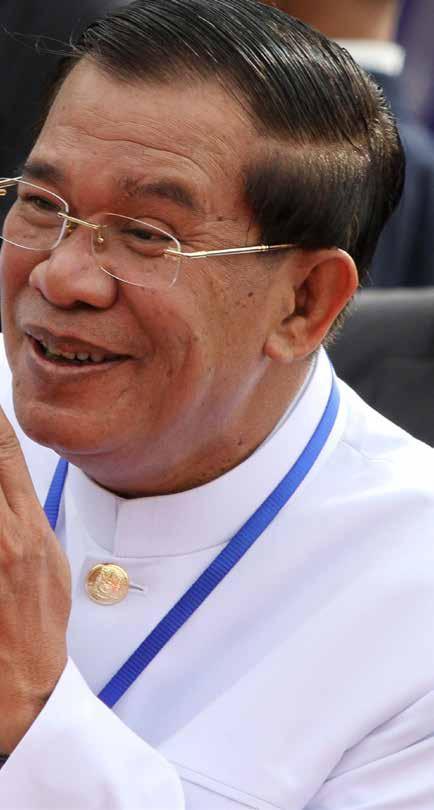 –Hun Sen’s Cambodia is published in this region by Silkworm Books in Chiang Mai, Thailand.
Prime Minister Hun Sen greets members of his Cambodian People's Party (CPP) during a new parliament session in central Phnom Penh last year.
–Hun Sen’s Cambodia is published in this region by Silkworm Books in Chiang Mai, Thailand.
Prime Minister Hun Sen greets members of his Cambodian People's Party (CPP) during a new parliament session in central Phnom Penh last year.
63 December 2014 TheIrrawaddy
PHOTO: REUTERS
Ghosts of War
Two outstanding books revisit heroic and harrowing times during the Second World War
Epic Feats
Elephant Company, by Vicki Constantine Croke. (Non-Fiction).

American Vicki Croke chanced upon a memoir written by an unusual colonial-era Englishman and elephant keeper, and was captivated by his account of leading a company of the animals through epic feats in the battle against the Japanese during the Second World War in Myanmar.
James Howard Williams’ 1950s book “Elephant Bill” described how elephants helped refugees escape Myanmar over steep and treacherous mountains, built bridges and transported weapons and supplies. Croke’s eloquent reprisal of a forgotten tale is also the story of special animals, notably Bandoola, the elephant Williams loved most of all for his wisdom and sense of humor. Bandoola’s role in helping refugees scale an impossibly steep and dangerous mountain cliff almost strains belief. Following Williams, Croke is also taken with Po Thoke, the mahout who refused to “break” the young Bandoola and instead tamed him through gentle encouragement.
Published by Random House.
Booker Winner
The Narrow Road to the Deep North, by Richard Flanagan. (Fiction).


Richard Flanagan became the third Australian to win the UK’s Booker Prize this year with a novel drawing on his father’s experiences as a prisoner of war on the Thailand-Burma “Death Railway.”
The story shifts between the Thai POW camp where surgeon Dorrigo Evans struggles with a hellish jungle existence and guilt over an old love affair, and contemporary Australia where he is an old man.
Flanagan’s multi-layered story has received rave reviews for its depth of characterization and insights into humanity in extremis. While Evans is perceived as a savior by the suffering prisoners around him, in his own eyes he is a “weak man.” In the minds of the camp’s Japanese overseers, ideas about weakness have been shaped inside an entirely different paradigm. The character of Evan’s former lover Amy Mulvaney illuminates the pain of women left behind during war and the power of love to ignite the human imagination. It took Flanagan twelve years and many discarded drafts to complete a story likely to go down as one of the Booker’s best.
Published by Chatto and Windus.
FESTIVAL —A host of local and international artists are expected to descend on People’s Park in Yangon this month for the sixth installment of the Beyond Pressure Public Art Festival on Dec. 6-7. The festival, which began in 2008, was one of the first international festivals of performance art in Myanmar.
This year’s event is set to feature performance art, installations, video art and graffiti works, as well as workshops and symposiums. Alongside local artists will be artists from across Asia, including from Malaysia, Vietnam, Thailand, Taiwan, Afghanistan, Bangladesh, Indonesia, India and Singapore.
Beyond Pressure, an independent, community driven art organization, aims to “show in practice that it is possible in contemporary Myanmar to do outstanding and daring performance art in more public spaces,” according to its website.
READ UP —Also in December, a Mobile Library comprised of over 450 publications on artistic practice, curating, art theory and art history, including periodicals, monographs, exhibition catalogues and other publications, will circulate to different venues in Yangon.
Mobile Library is a project initiated by Asia Art Archive (AAA) to promote contemporary art and cultural exchange and previous editions have taken place in Vietnam and Sri Lanka. The Myanmar edition has been established in collaboration with the Myanmar Art Resource Center and Archive (MARCA)—a local organization that has translated a synopsis for many of the books into the Myanmar language.
The Mobile Library collection will be available at the Goethe-Institut in Yangon on Dec. 1 to Dec. 15 and the New Zero Art Space on Dec. 15 to Jan. 6, before moving on to Mandalay.
Arts in December
64 TheIrrawaddy December 2014 BACKPAGE | HOLIDAY READS
Bandoola scales a mountain. Image from ‘Elephant Bill’ by J.H. Williams.




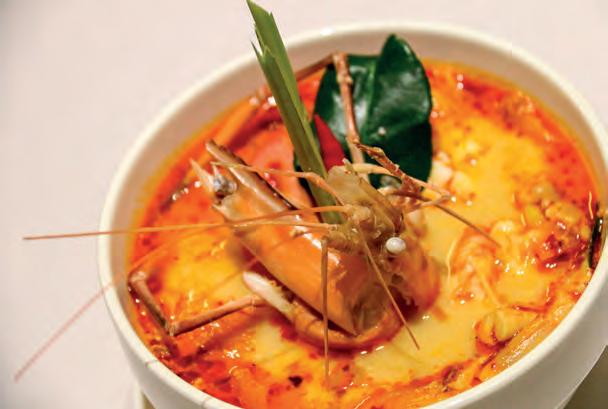
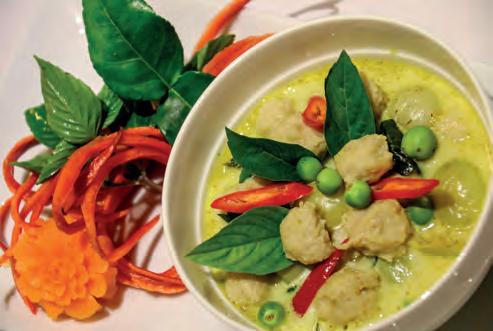




M Y
C












































 By THE IRRAWADDY
By THE IRRAWADDY










































































 By MARK INKEY / YANGON
By MARK INKEY / YANGON



 By SIMON ROUGHNEEN / YANGON
By SIMON ROUGHNEEN / YANGON






 –Hun Sen’s Cambodia is published in this region by Silkworm Books in Chiang Mai, Thailand.
Prime Minister Hun Sen greets members of his Cambodian People's Party (CPP) during a new parliament session in central Phnom Penh last year.
–Hun Sen’s Cambodia is published in this region by Silkworm Books in Chiang Mai, Thailand.
Prime Minister Hun Sen greets members of his Cambodian People's Party (CPP) during a new parliament session in central Phnom Penh last year.










